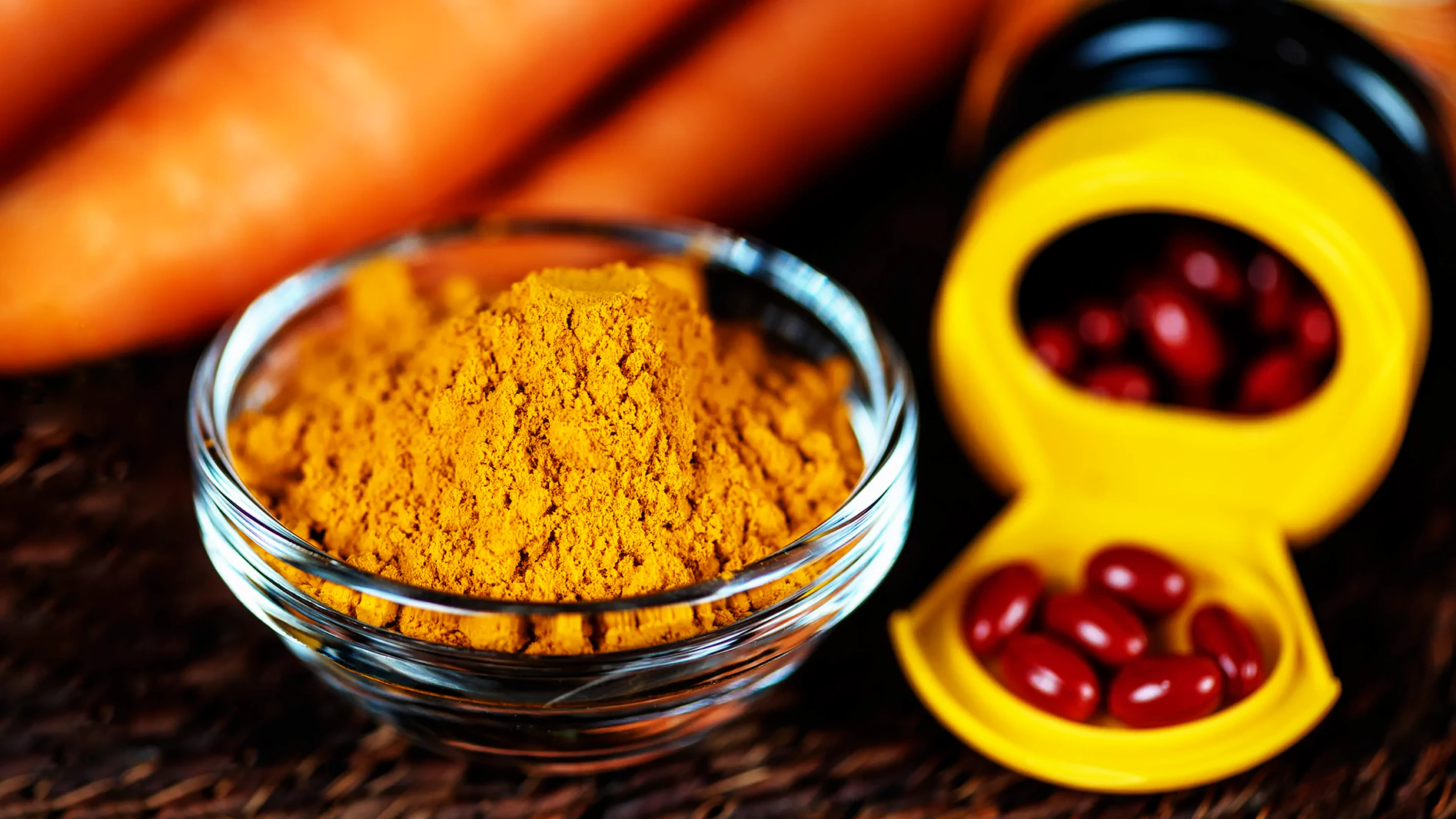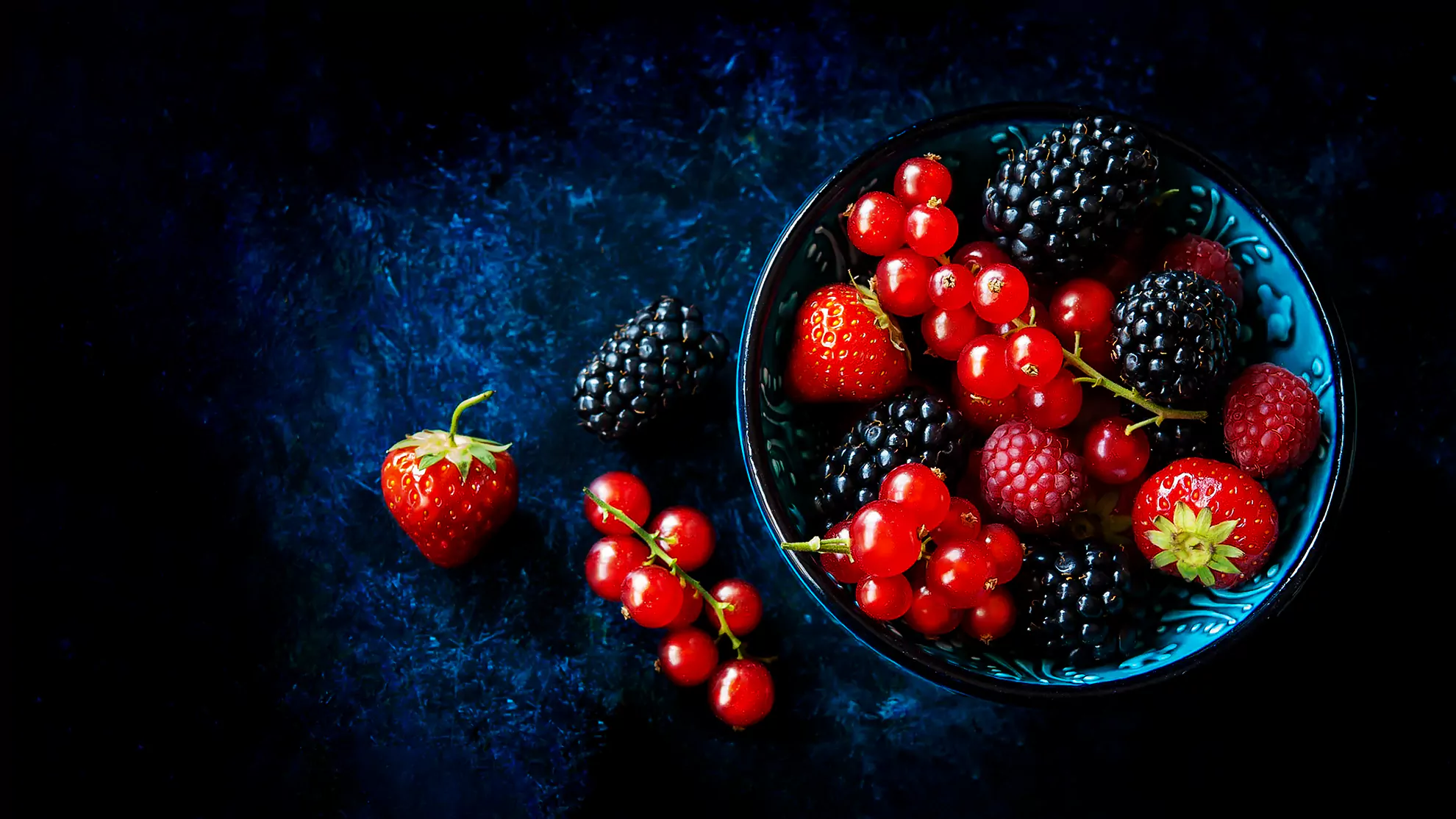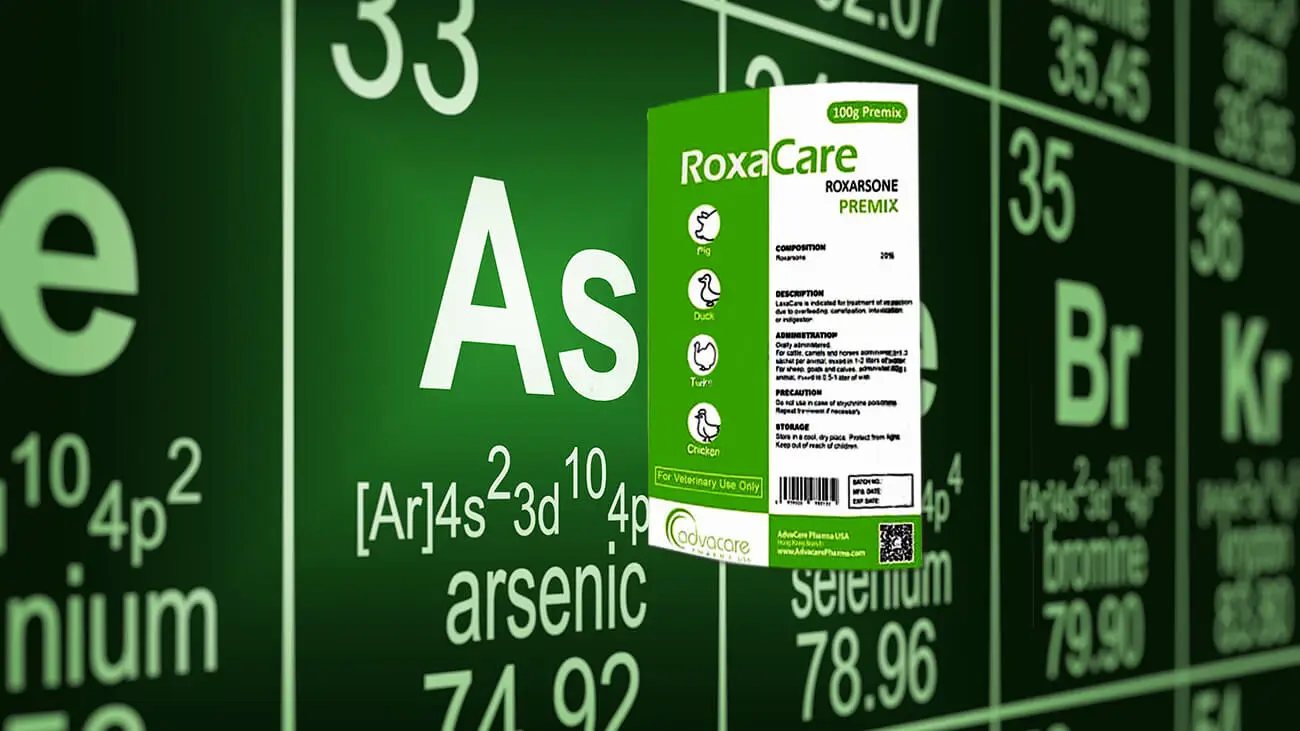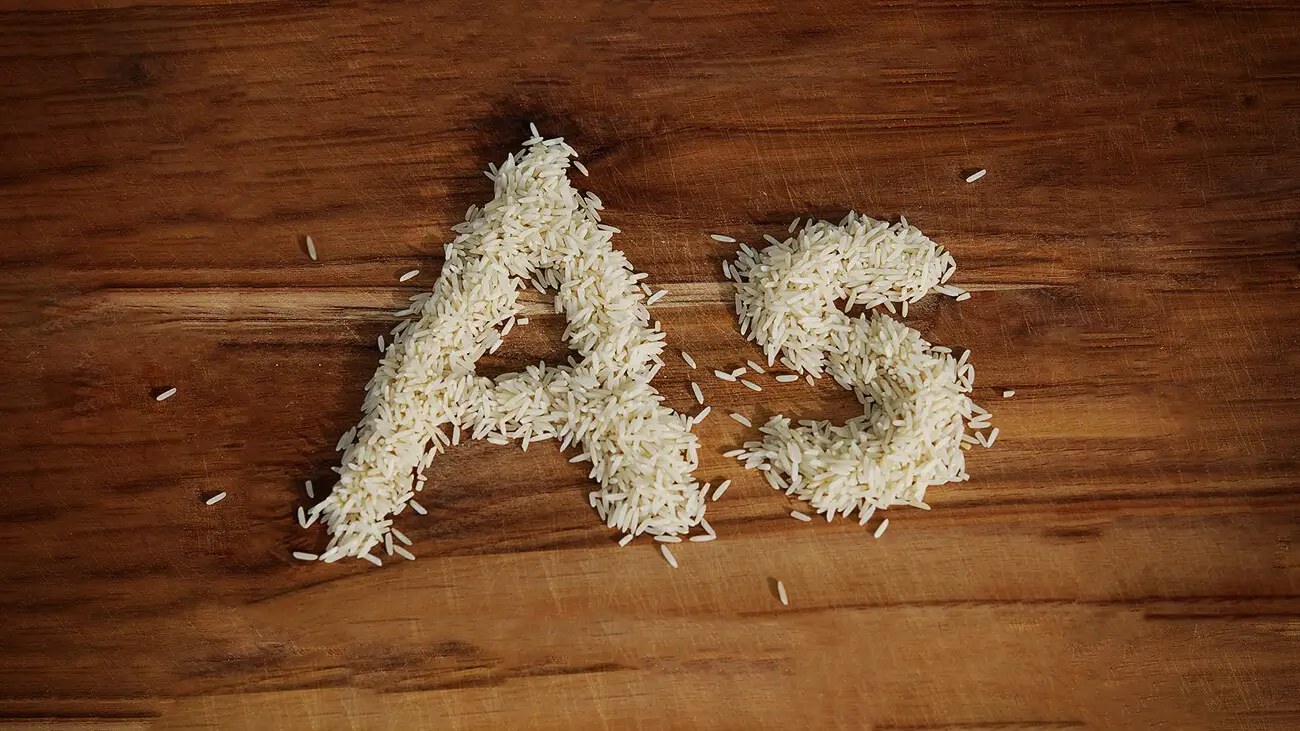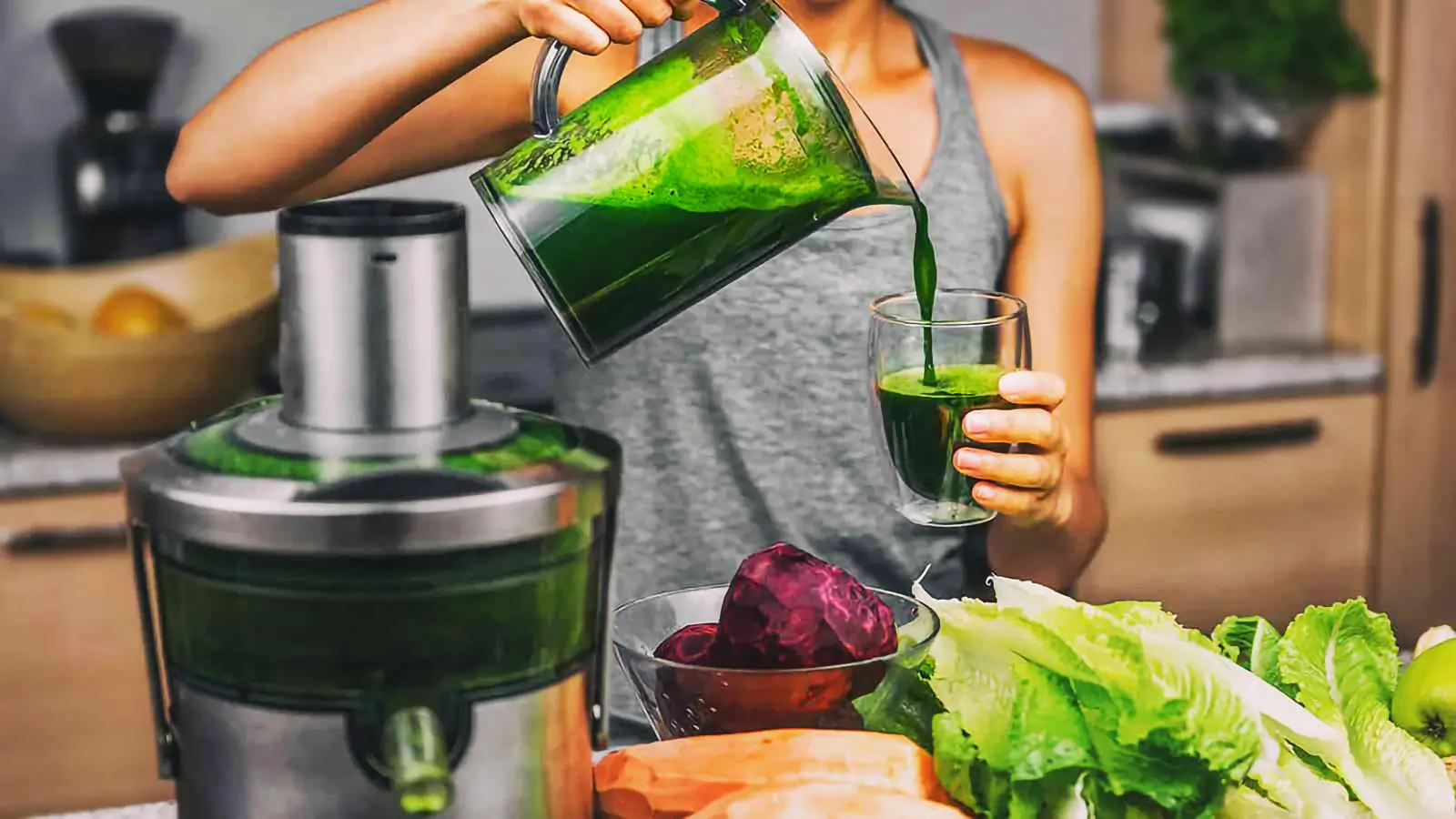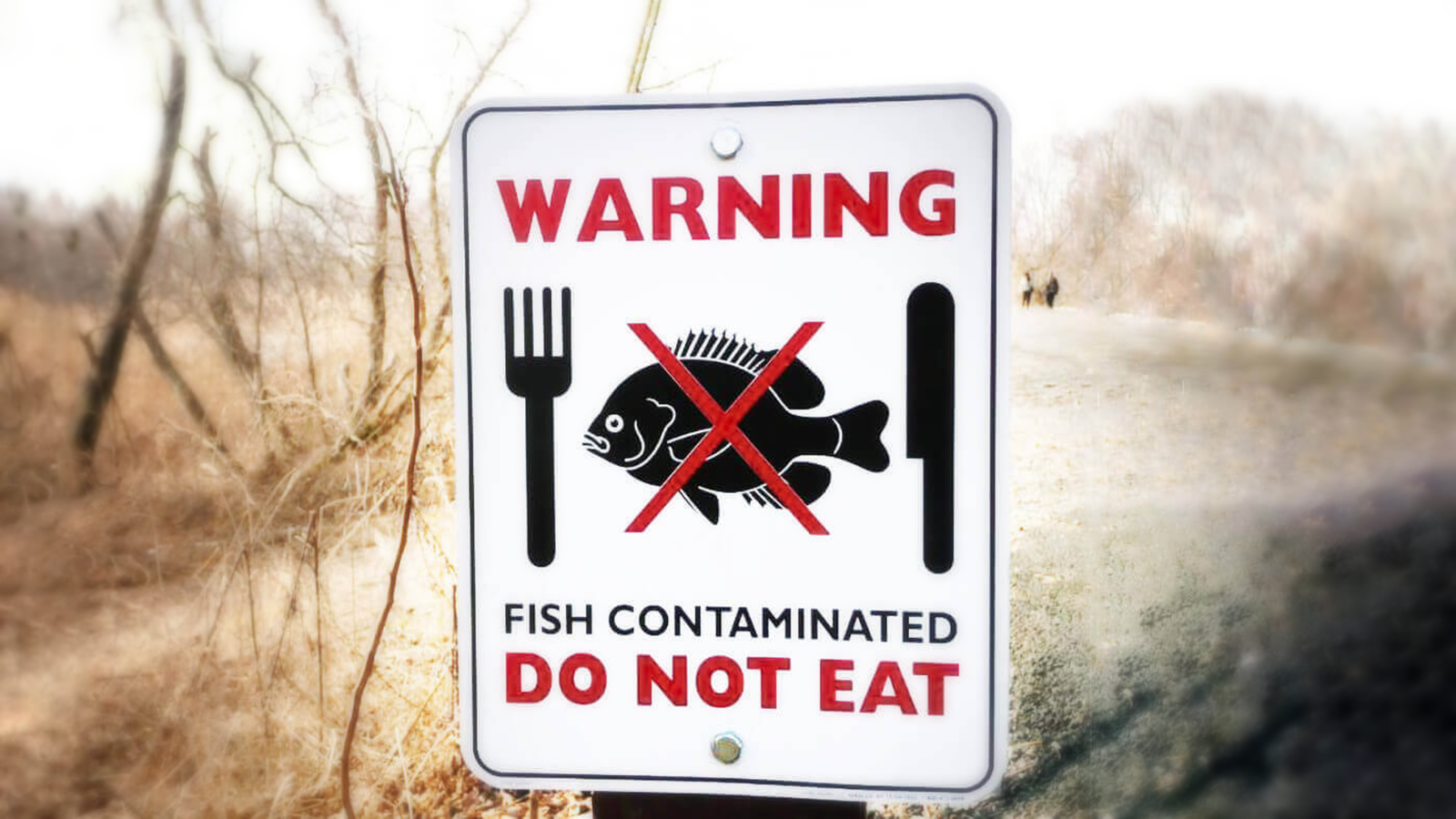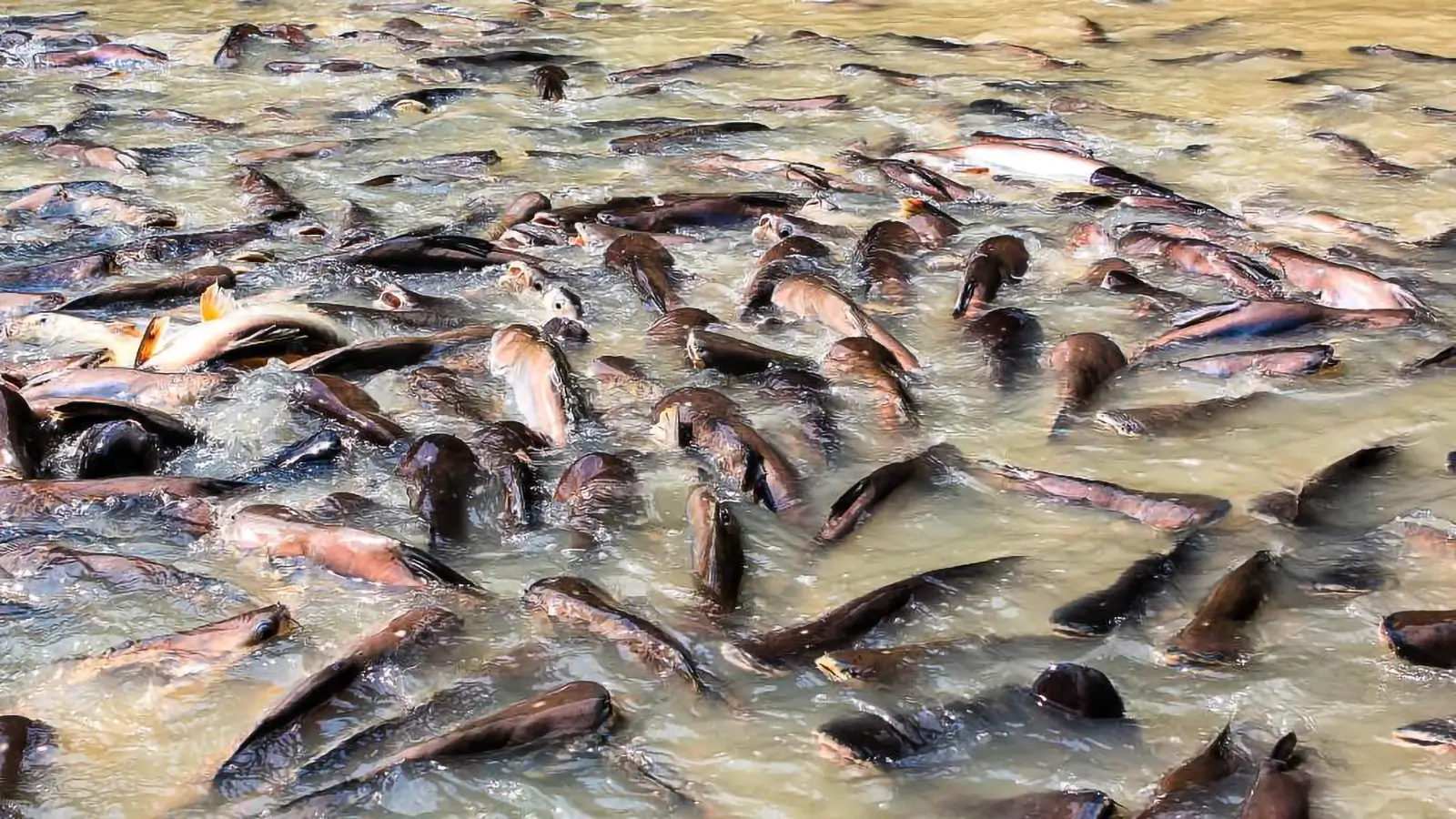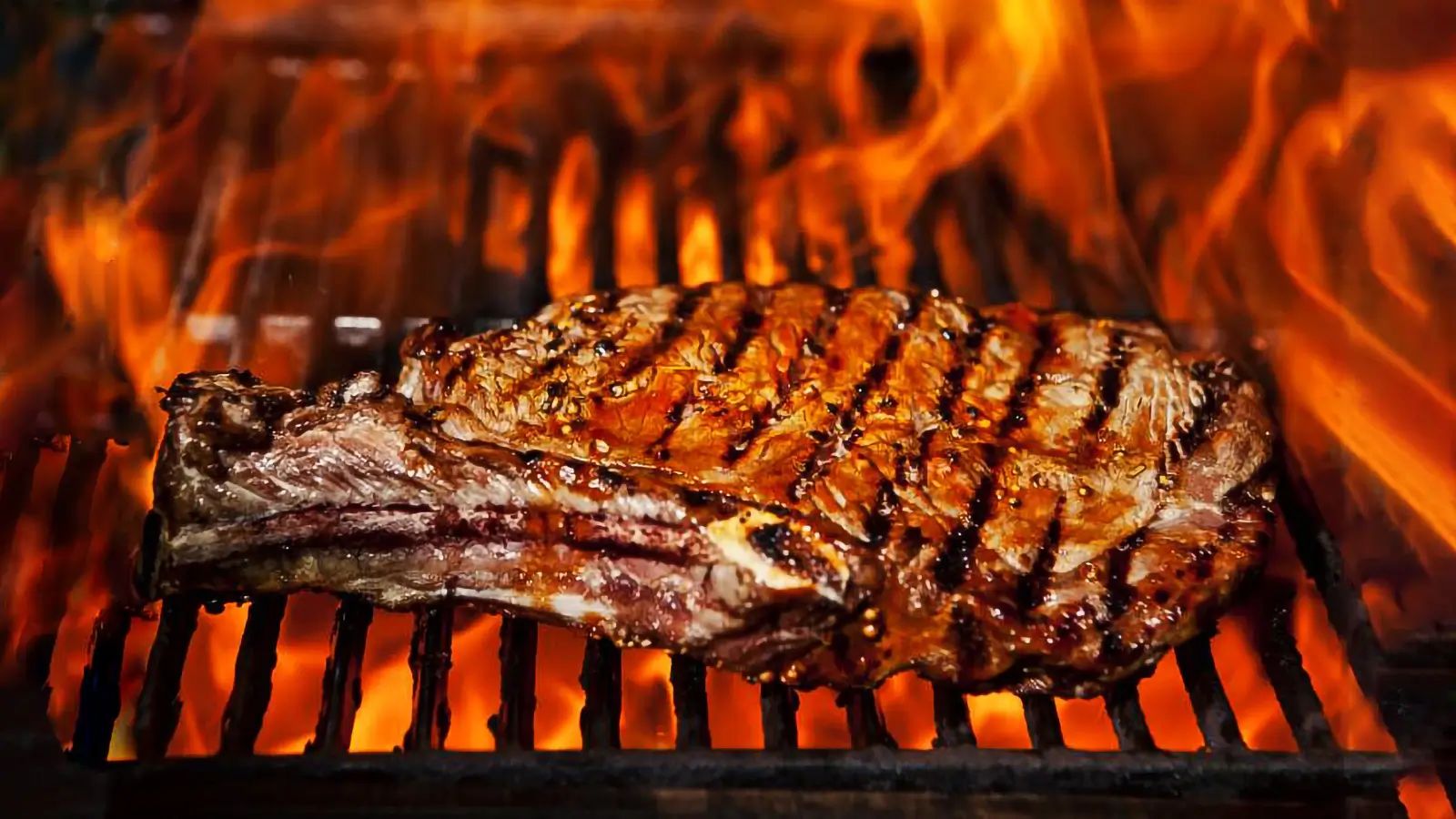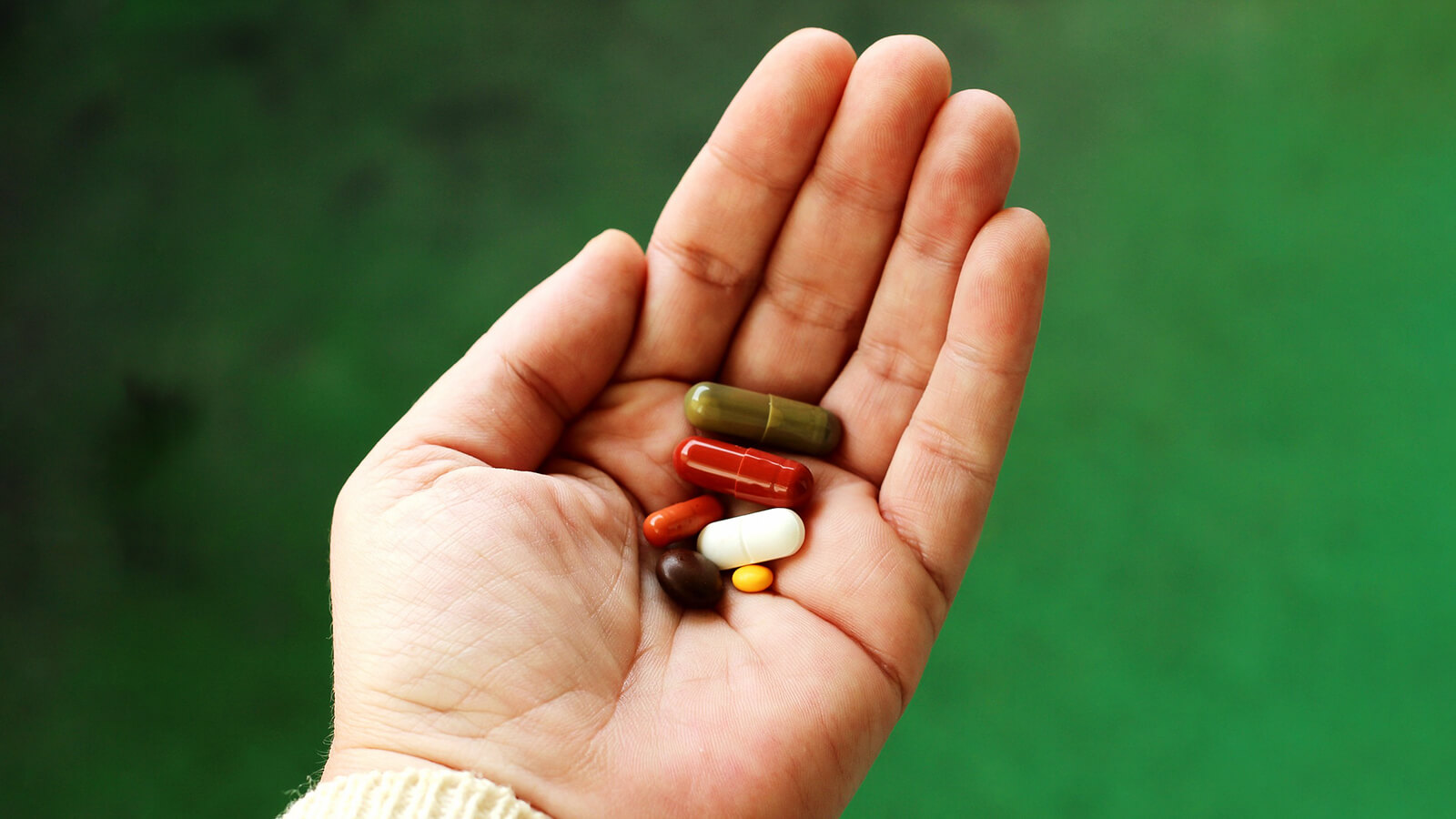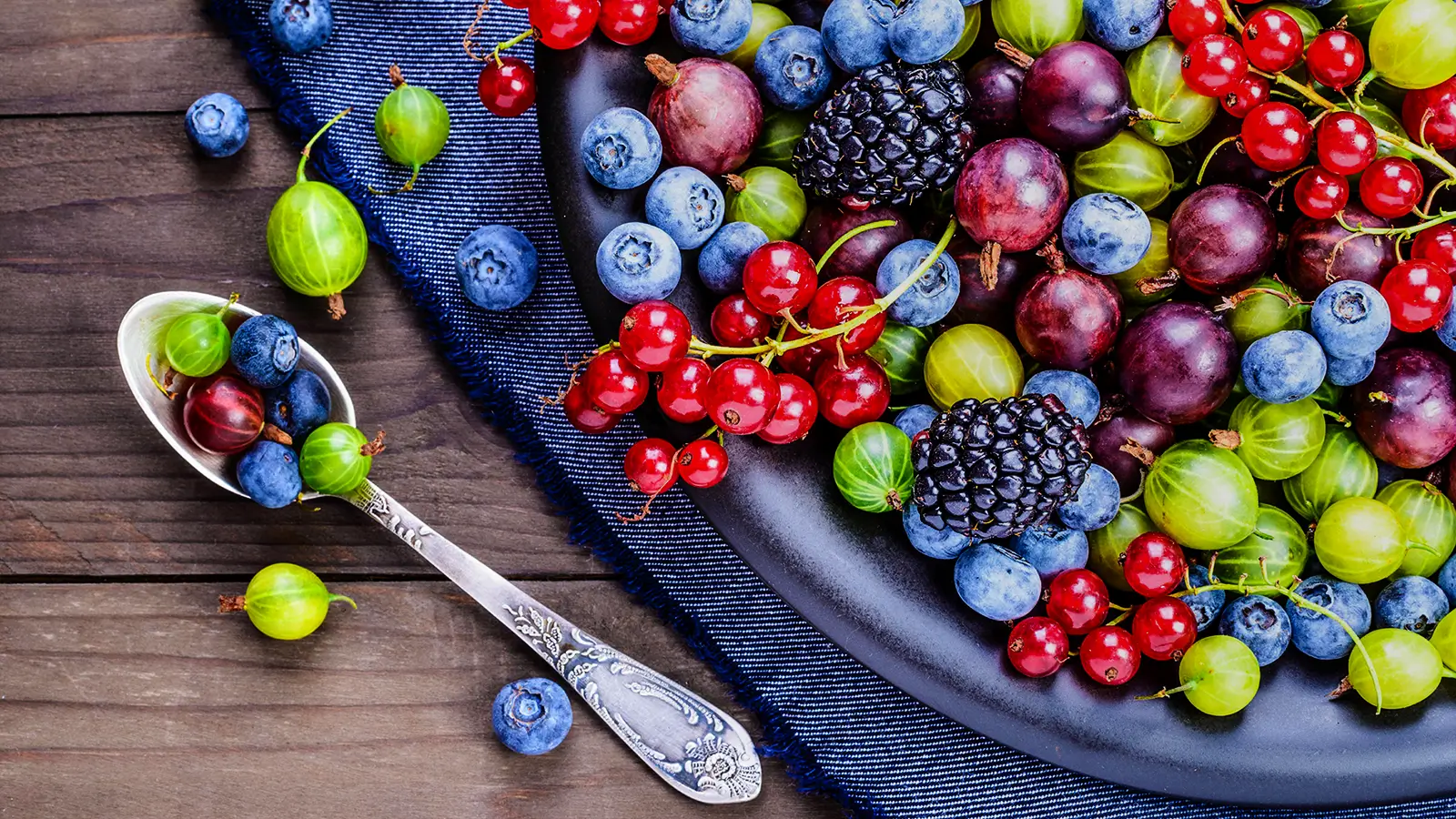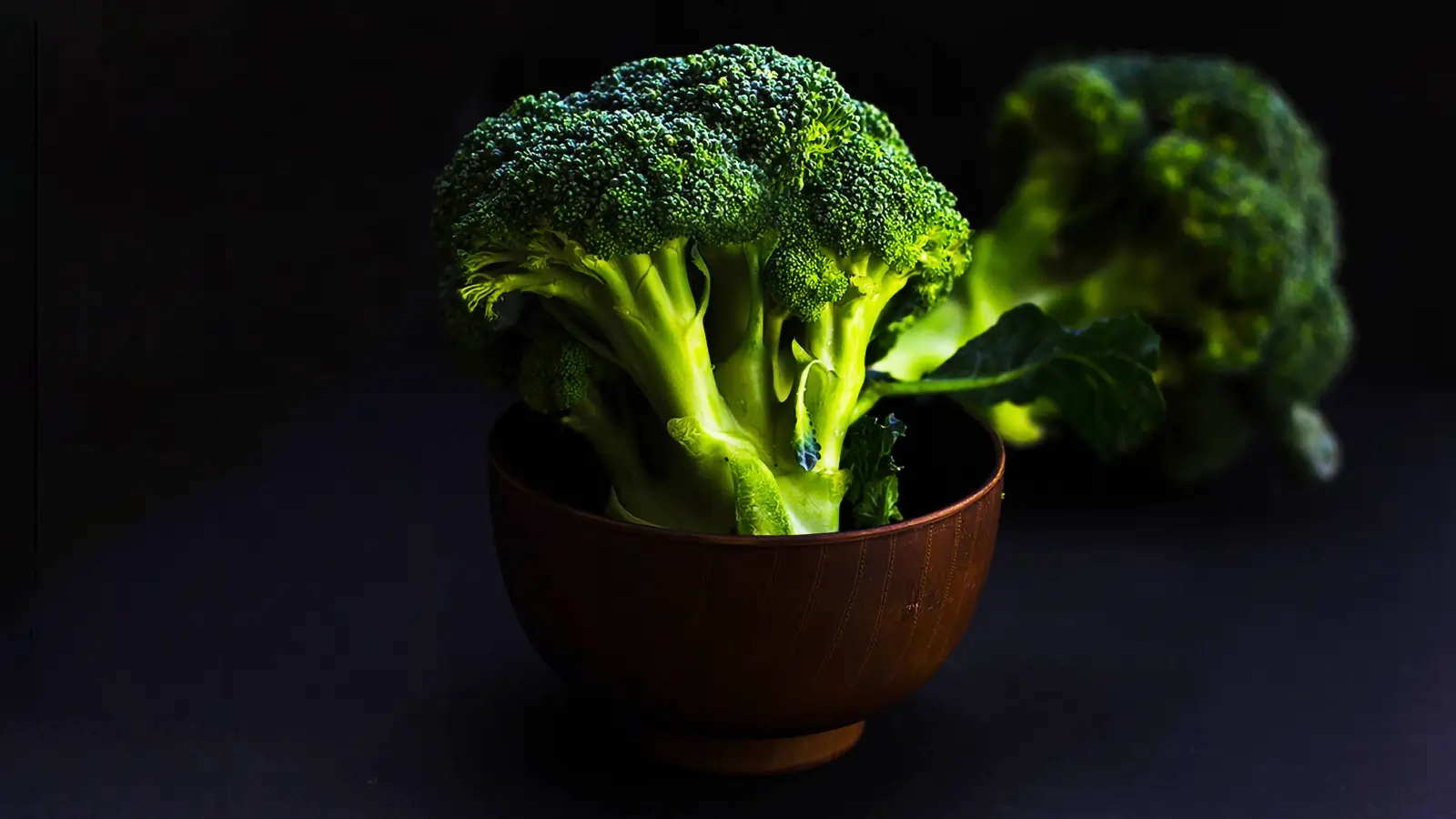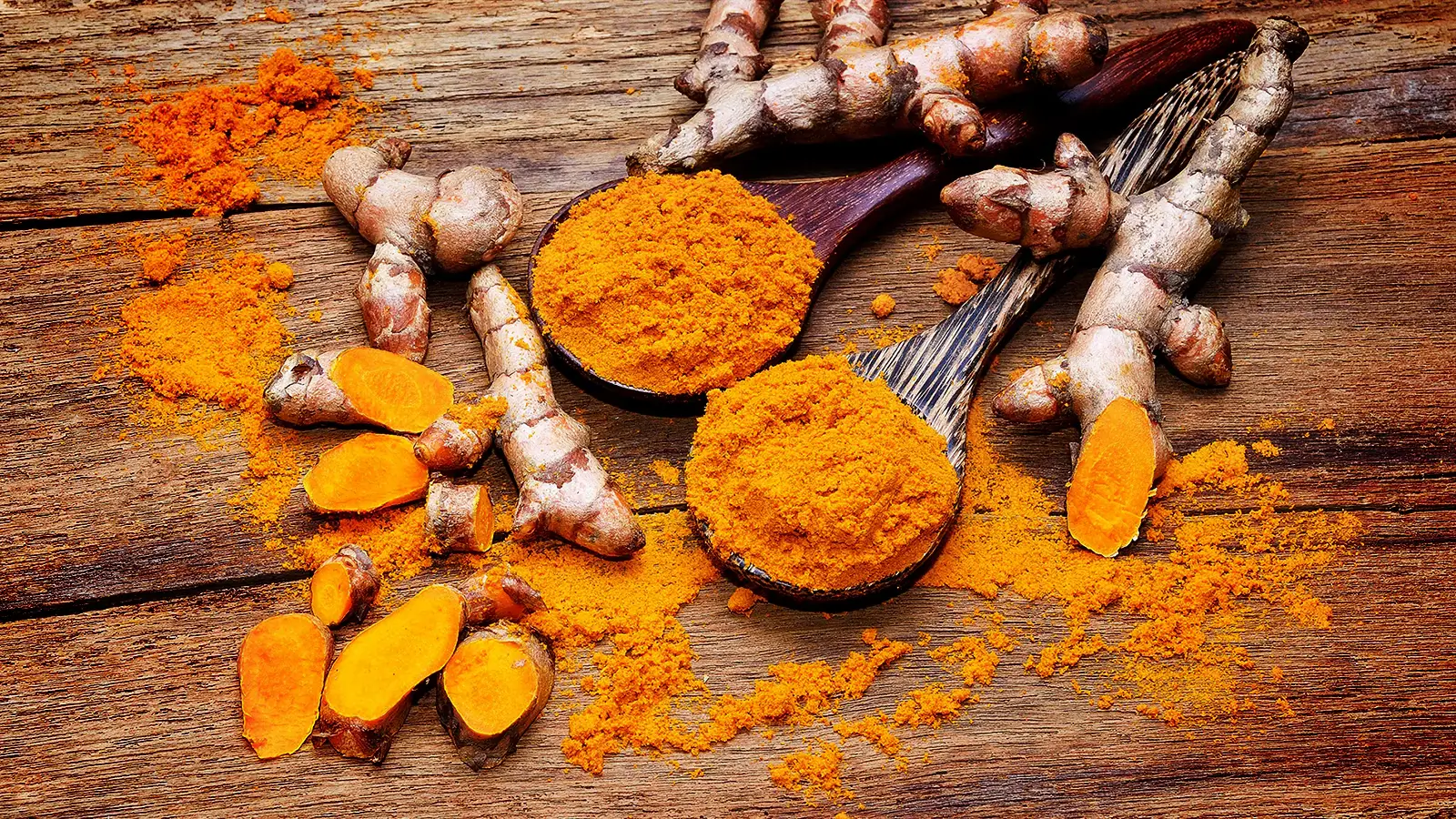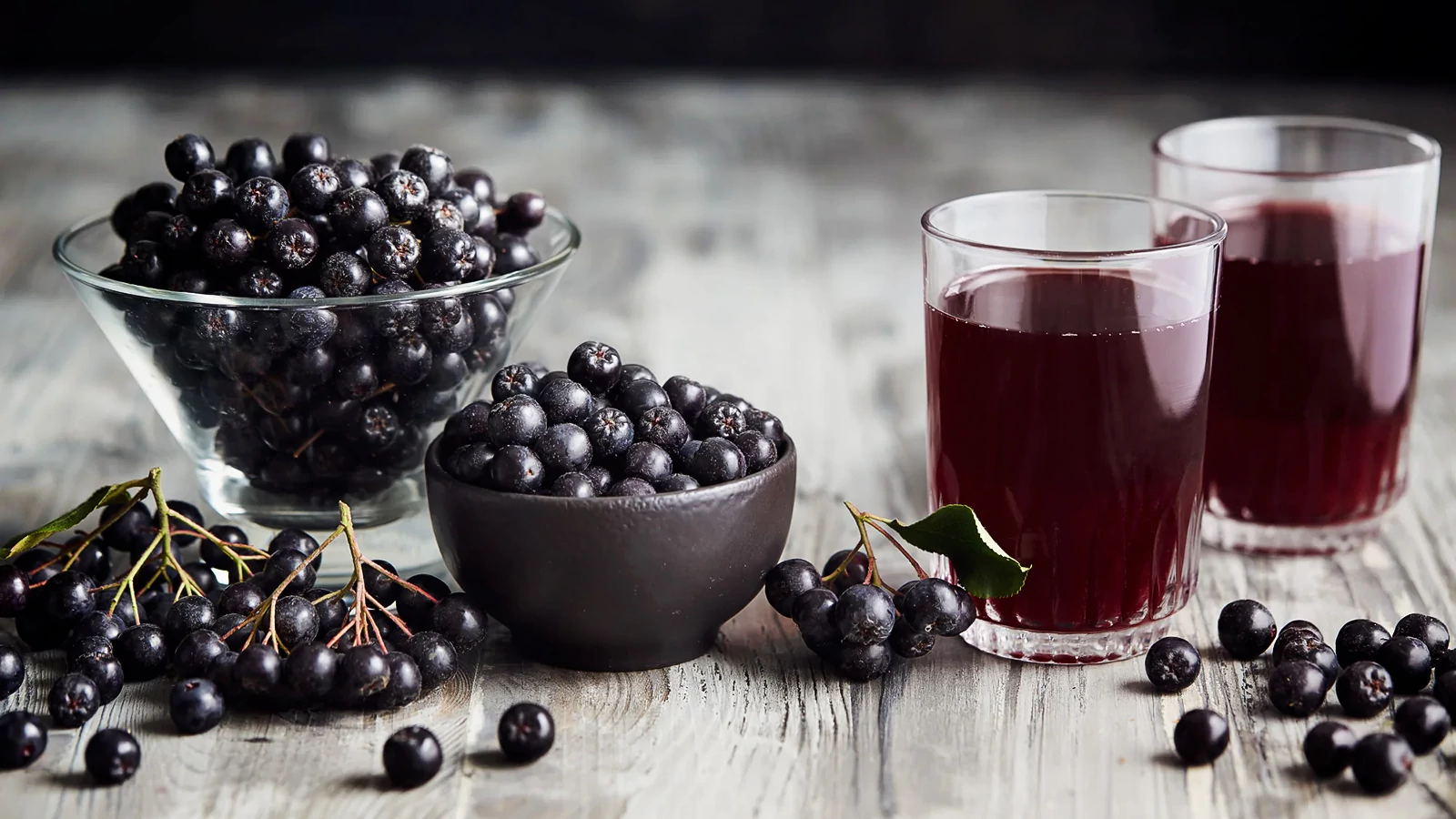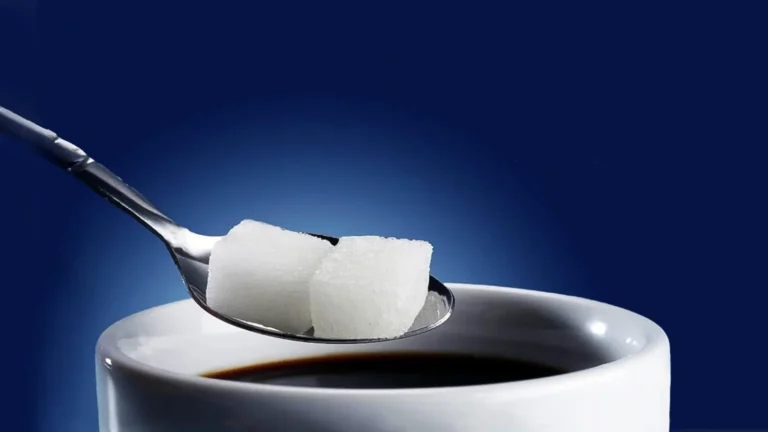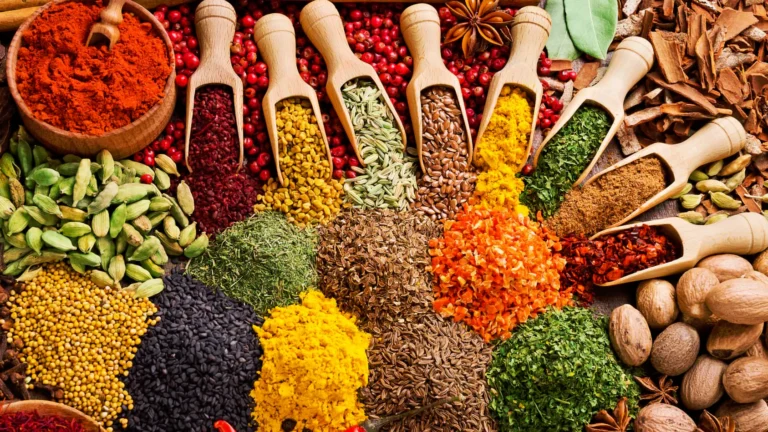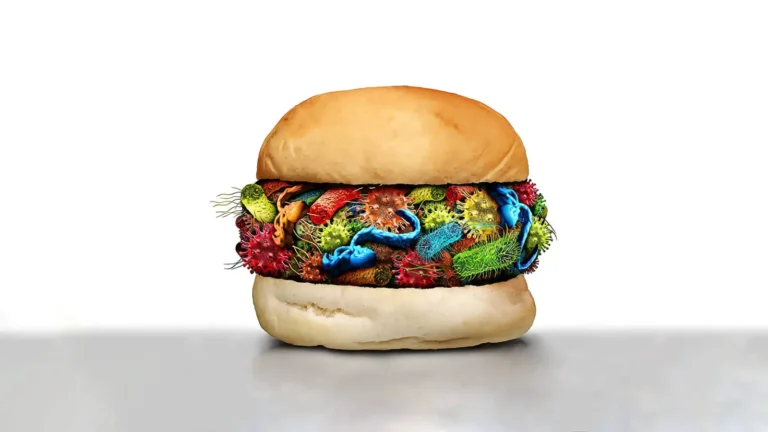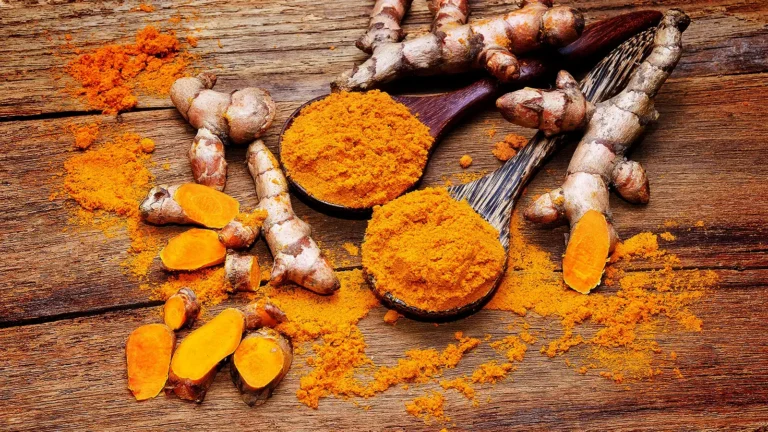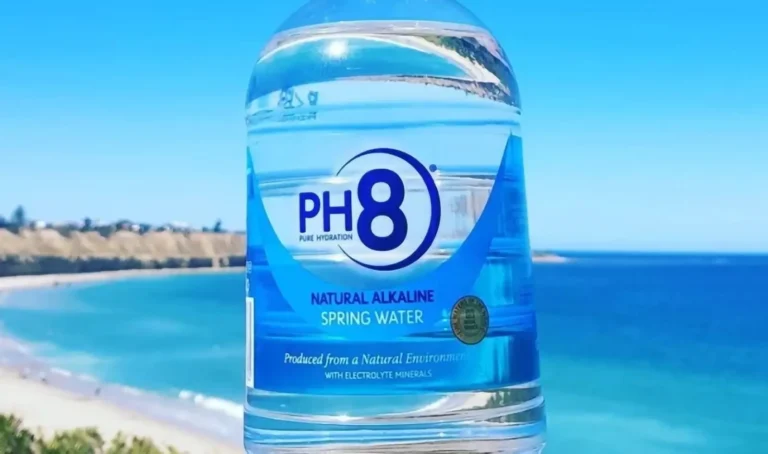Chlorella Benefits: Plant-Based B12, Iron, Zinc & Detox
Chlorella is a vegan source of B12, iron and zinc, has strong chelation properties for heavy metals, boosts immune system, lowers cholesterol and anemia risk.
Milos Pokimica
Written By: Milos Pokimica
Medically Reviewed by: Dr. Xiùying Wáng, M.D.
Updated January 4, 2026Key Takeaways:
– Chlorella has a unique ability to bind to heavy metals and toxins in your body and flush them out.
– The studies showed that chlorella was able to reduce the amount of lead in the blood by a full 66% and that it has a high adsorption capacity for cadmium and other heavy metals as well.
– Consuming chlorella before drinking alcohol can help speed up the process of alcohol metabolism and lower blood alcohol levels and acetaldehyde levels (Saito et al., 2011).
– Cilantro and chlorella can help to remove heavy metals from the body by different mechanisms that are synergistic. Cilantro is a herb that mobilizes heavy metals from the tissues and organs, making them available for excretion. Chlorella is a type of green algae that binds to heavy metals and helps to excrete them.
– Chlorella may help the immune system by increasing the production and activity of white blood cells, enhancing the function of natural killer cells, stimulating the secretion of interferons, and by reducing inflammation.
– The researchers found that chlorella significantly reduced oxidative stress and prevented cognitive decline and brain inflammation in the mice.
– Chlorella may help prevent the transfer of dioxins from the mother to the baby through breast milk.
– Taking chlorella during pregnancy may be a simple and effective way to improve your nutritional status and lower your risk of pregnancy anemia and PIH.
– In the the study (Ryu et al., 2014) that involved 63 people with mildly high cholesterol chlorella group had significant reductions in total cholesterol, triglycerides, and bad cholesterol (LDL). Chlorella can block the absorption of fats from food and also from the liver into the blood.
– Chlorella has peptides that are natural ACE inhibitors.
– Chlorella decreases blood vessel stiffness, which improves the function of blood vessels and lowers blood pressure.
– Chlorella has one of the highest concentrations of nucleic acids among all foods. By providing a rich source of nucleic acids, the Chlorella Growth Factor can help repair damaged RNA and DNA and restore the normal function of the cells.
– Rats that received 5% or 10% of Chlorella vulgaris in their diets had higher fecal lipid excretion.
– Chlorella intake influences the expression of many genes that are involved in signaling, metabolism, receptors, transporters, and cytokines.
– Chlorella intake affected the expression of genes that are directly related to glucose uptake.
– Chlorella supplementation increases the levels of vitamin C and alpha-tocopherol by 15.7% in the plasma. It also increases the activities of catalase and superoxide dismutase, which are enzymes that help break down free radicals, in the red blood cells.
– Chlorella has water-soluble antioxidants and does not prevent the damage to the cell membranes caused by free radicals.
– Chlorella is a natural and vegan source of bioavailable vitamin B12 that can help vegetarians and vegans prevent or treat a vitamin B12 deficiency.
– Chlorella is rich in iron and can help prevent iron deficiency anemia.
– Ten grams of chlorella would give us a 75% RDA for zinc.
– Chlorella also contains chlorophyll and is one of the richest sources of chlorophyll in the world.
What Is Chlorella?
Chlorella is not a new supplement craze or just another mass-produced extract from China. It is a type of single-celled freshwater green algae and it has been around from the beginning of evolution and has been used as a food source by humans for centuries. It is native to Taiwan and Japan and part of their culture for a long time. Traditionally it is cultivated in large outdoor tanks under natural sunlight. It belongs to the green algae family, which means it contains chlorophyll, the pigment that gives plants their green color.
What is important is that chlorella is a superfood or nutrient-dense food source that has some other unique health benefits as well. It contains more protein than meat, eggs, or soybeans, and more iron than spinach or beef liver. It also has plenty of vitamins, antioxidants, minerals, and some other unique properties. It has been studied for its potential to lower cholesterol levels, reduce anemia risk during pregnancy, and boost the immune system, it has strong chelation properties for heavy metals and can treat various health conditions.
Chlorella has a unique ability to bind to heavy metals and toxins in your body and flush them out. This is called chelation, and it can help you detoxify from pollution, pesticides, mercury, lead, and other harmful substances.
Summary:
Chlorella, an ancient superfood brimming with nutrients and unique properties like chelation (binding toxins for removal), may offer cholesterol reduction, anemia prevention, immune support, and detoxification benefits.
Chlorella Vulgaris vs. Chlorella Pyrenoidosa.
There are different kinds of chlorella. The two most common ones are Chlorella vulgaris and Chlorella pyrenoidosa. They are both great sources of nutrition, but they have some differences that you should know about.
The main difference is that Chlorella pyrenoidosa has a special structure in its chloroplast called a pyrenoid. A chloroplast is part of the cell that makes photosynthesis, which is how the algae convert light into energy. A pyrenoid is like a turbocharger for photosynthesis. It helps the algae to capture more carbon dioxide and make more starch and other molecules.
Another difference is that Chlorella pyrenoidosa has a thicker cell wall than Chlorella vulgaris. The cell wall is the outer layer of the cell that protects it from the environment. The cell wall of pyrenoidosa has more complex sugars and minerals, which may make it more effective at binding to heavy metals and toxins and flushing them out of your body. The cell wall of vulgaris is thinner and easier to break down, which may make it more absorbable and protein-rich.
Both types have their advantages and disadvantages, depending on what you are looking for. Some people may prefer pyrenoidosa for its higher content of vitamins and growth factors. Others may prefer vulgaris for its higher content of protein and digestibility. Because we are already buying broken cell wall supplements and if the supplement is of high quality then I usually go for pyrenoidosa but the difference is not substantial.
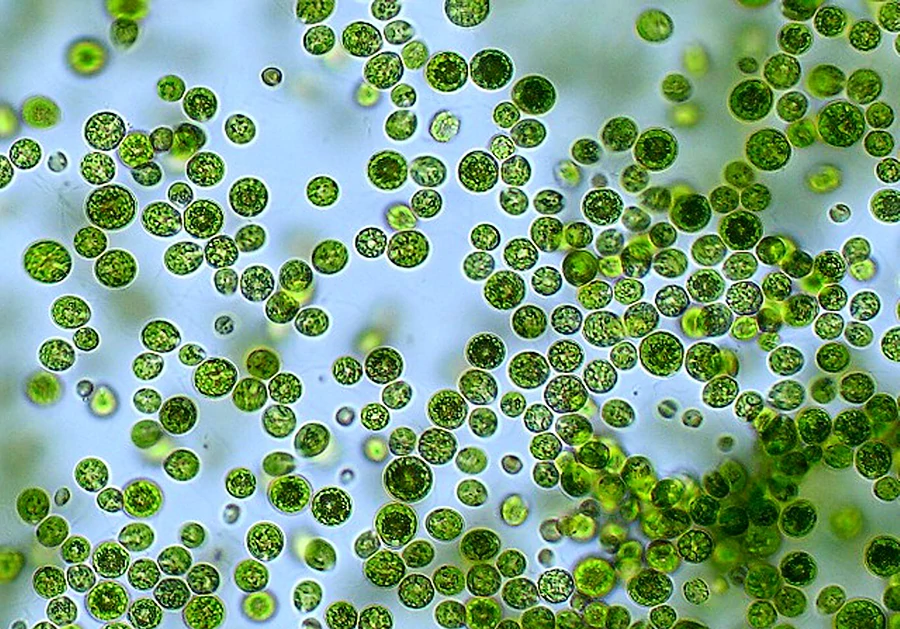
Summary:
While both Chlorella vulgaris and pyrenoidosa offer great nutrition, pyrenoidosa’s thicker cell wall may boost toxin removal while vulgaris’ thinner wall favors easier protein absorption, however, the difference is subtle.
Broken Cell Wall Chlorella as a Supplement.
Chlorella has a hard cell wall that our body cannot digest. If we take whole-cell chlorella, we will miss out on most of the nutrients that it contains. But if we take broken cell wall chlorella, we will be able to absorb all of the nutrients and get the most out of your supplement.
There are different methods of breaking the cell wall, such as fermentation, cracking, and pulverization. Each method has its pros and cons.
Fermentation is a way of breaking the cell wall by using heat and bacteria. This can make the cell wall softer and more digestible, but it can also reduce some of the nutrients and stop the production of CGF (Chlorella Growth Factor), a growth factor that helps your cells grow and repair. CGF also boosts your immune system and protects you from infections.
Cracking is a way of breaking the cell wall by using sound vibrations or high-pressure nozzles. This can make the cell wall more brittle and easier to break, but it may not work very well or evenly. Some parts of the cell wall may remain intact and prevent you from absorbing the nutrients inside.
Pulverization is a way of breaking the cell wall by using mechanical force, which is the industry standard in most situations. This can make the cell wall into a fine powder and increase its surface area, but it may also cause some problems. For example, it may contaminate the chlorella with metal particles or heat it too much.
So which method is the best? In my view, it is cracking but is it the most expensive one and it depends on the quality and safety standards of the manufacturer. Also if you have a cracking method used then I would recommend increasing the dosage because some of the cell walls would not the fully broken down and some parts of the powder will be undigestible but to what extent depends on the quality of the product. Fermentation is the cheapest and in my view worst method because it does increase bioavailability but it will decrease the production of CGF. This is a unique property of chlorella for which we would be using it in the first place. We could get other nutrients from other supplements if we want to.
Summary:
Choose broken cell wall Chlorella for maximum nutrient absorption, but prioritize cracking over fermentation if CGF (immune-boosting growth factor) and quality outweigh the cost. Cracking might require a slightly higher dosage due to potential incomplete breakdowns.
Chlorella Heavy Metal Detox.
Heavy metals are substances like mercury, lead, arsenic, and cadmium that can build up in the body over time and cause serious problems, such as brain damage, immune system weakness, and organ failure. They are everywhere in our environment from air pollution, contaminated water, and food both organic and non-organic, or we can absorb them from the products we use on our skin or hair. Even if we try to avoid pollution, we will still get a large sum of toxicity.
Studies show that chlorella is very effective at removing several harmful compounds from your body, including heavy metals like lead, mercury, arsenic, and cadmium. It can also help to protect your body from the damage caused by heavy metal exposure. It can reduce the oxidative stress and inflammation that heavy metals cause in your cells. It may also boost the production of glutathione, a powerful antioxidant that helps to neutralize toxins.
Heavy metal toxicity, including cadmium and lead toxicity, is a problem facing many countries.
One of the infections that lead can make worse is caused by a bacterium called Listeria monocytogenes. This bacterium can cause serious illness and even death in some people, especially those who have weak immune systems, such as pregnant women, newborns, elderly people, and people with chronic diseases.
One study (Queiroz et al., 2003) showed that when mice were exposed to lead and infected with Listeria monocytogenes, their immune system was severely impaired. They had fewer blood cells that could fight the infection and produce inflammation. They also had fewer bone marrow cells that could make new blood cells. They had more spleen cells that were making blood cells outside the bone marrow, which is not normal. And they had smaller thymus glands that were making fewer immune cells.
The study also showed that when mice were given chlorella along with lead and infection, their immune system was restored to normal levels. They had more blood cells, they had more bone marrow cells, they had fewer spleen cells that were making blood cells outside the bone marrow, and they had bigger thymus glands that were making more immune cells.
The study also showed that when mice were given chlorella after being exposed to lead and infected with Listeria monocytogenes, they had a better chance of surviving. They were able to resist a lethal dose of Listeria monocytogenes better than mice that were not given chlorella.
The study also showed that chlorella worked better when it was given at the same time as lead exposure than when it was given after lead exposure. This was because chlorella was able to prevent the lead from entering the bloodstream and reaching the organs. Chlorella was also able to stimulate the production of a substance called interferon-gamma, which is a key factor in fighting infections.
The study also showed that chlorella was able to reduce the amount of lead in the blood by a full 66%. This was because chlorella was able to chelate or grab onto the lead and remove it from the body.
If we look at cadmium this study showed that chlorella was able to reduce the absorption of cadmium into the body and increase its excretion (Volgusheva et al., 2022). Another study showed that chlorella was able to remove more than 95% of the total amount of cadmium from the water in 5 minutes (Carfagna et al., 2013). The study also showed that both live and dead chlorella biomass had high adsorption capacity for cadmium, with 96.8% and 95.2% of the total amount of cadmium being removed by the dead algal and the live algal biomass, respectively.
Another study showed that chlorella was able to protect the cells from the cytotoxicity and genotoxicity induced by cadmium (Cheng et al., 2016). The study also showed that chlorella was able to modulate the expression of genes related to metal detoxification, oxidative stress response, DNA repair, cell cycle regulation, and apoptosis.
Summary:
Chlorella effectively removes heavy metals (mercury, lead, arsenic) from your body and protects against their damage by reducing inflammation and boosting antioxidant production. Studies suggest it even strengthens the immune system against bacterial infections worsened by heavy metal exposure like lead.
Chlorella Promotion of the Alcohol Metabolism.
Consuming chlorella before drinking alcohol can help speed up the process of alcohol metabolism and lower blood alcohol level and acetaldehyde level (Saito et al., 2011).
Alcohol is metabolized by your liver into a toxic substance called acetaldehyde, which causes many of the unpleasant effects of alcohol, such as headache, nausea, flushing, and rapid heartbeat. Acetaldehyde is then converted into a harmless substance called acetate, which is excreted from your body.
The study (Saito et al., 2011) involved just 6 healthy volunteers who drank 0.5 g/kg of ethanol (which is equivalent to 750 mL of beer containing 4% of alcohol for a person weighing 60 kg) after taking either chlorella or placebo. The study measured the ethanol and acetaldehyde levels in their blood and breath before and after drinking.
They found that chlorella significantly reduced the ethanol level in the blood and tended to reduce the acetaldehyde level in the blood and the ethanol level in the breath. The study also found that chlorella significantly reduced the sleepiness, rapid heartbeat, and glow that the volunteers felt after drinking.
However, the evidence is limited at best and inconsistent, and more research is needed to confirm the potential benefits and mechanisms of chlorella for alcohol metabolism.
Summary:
Chlorella may enhance alcohol metabolism by lowering blood ethanol and acetaldehyde levels, potentially alleviating some hangover symptoms, but the evidence is limited and further research is needed.
Cilantro and Chlorella Together.
Cilantro and chlorella are two natural substances that can be used together to help detoxify the body from heavy metals. Cilantro and chlorella can help to remove heavy metals from the body by different mechanisms that are synergistic. To have full detoxification we need both of these mechanisms.
Cilantro is a herb that mobilizes heavy metals from the tissues and organs, making them available for excretion. Cilantro can also help to protect the body from oxidative stress and inflammation caused by heavy metal exposure.
Chlorella is a type of green algae that binds to heavy metals and helps to excrete them. Chlorella can also help to restore gut health and function, which is important for detoxification.
To use cilantro and chlorella together for heavy metal detox, it is recommended to take chlorella first, followed by cilantro, and then vitamin C several hours later to enhance the chelation process. The dosage may vary depending on the individual’s needs and tolerance, but a typical range is 1 to 9 grams of chlorella and a handful of fresh cilantro per day. It is advisable to start with a low dose and gradually increase it over time because the body deposits excess toxicity to fat tissue.
Largely due to their lipophilicity, POPs (persistent organic pollutants) bioaccumulate in adipose tissue, and if we release too much of them at the same time they may overrun our defensive mechanism and end up in our brain or create other problems. I would recommend anyone that who wants to lose weight to incorporate cilantro and chlorella and sulforaphane and distilled water and high level of ORAC units and vitamin C and many other detoxification aids during dieting. It is also important to drink plenty of water and eat a balanced diet to support the detox process.
After the detox, you can still continue to use cilantro in cooking and chlorella as a supplement for prevention.
Summary:
For powerful heavy metal detoxification, combine cilantro (mobilizes metals) and chlorella (binds & removes metals). Start low and gradually increase dosage while ensuring proper hydration and dietary support.
Boosting the Immune System.
Some of the ways that chlorella may help the immune system are:
- Increasing the production and activity of white blood cells, which are the cells that fight off pathogens and foreign substances (Otsuki et al., 2011).
- Enhancing the function of natural killer cells, which are a type of white blood cell that can destroy cancer cells and virus-infected cells (Kwak et al., 2012).
- Stimulating the secretion of interferons, which are proteins that help prevent viral replication and activate other immune cells (Kwak et al., 2012).
- Reducing inflammation, which is a common response to infection or injury, but can also cause tissue damage and chronic diseases in cases where chronic inflammation exists.
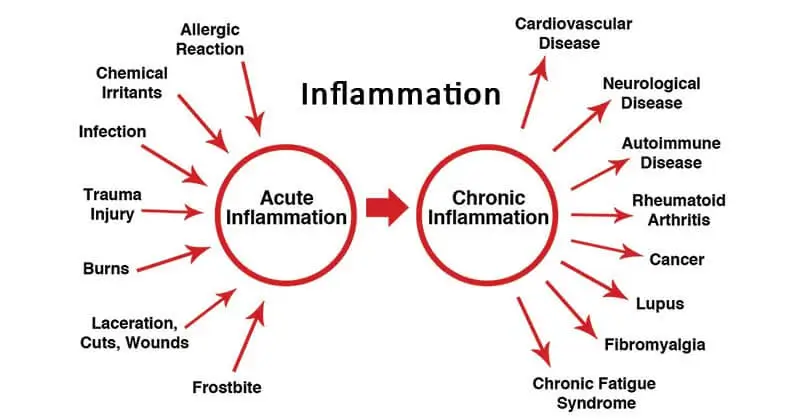
In the study (Otsuki et al., 2011) researchers tested if taking chlorella can boost the immune system by increasing the amount of immunoglobulin A, SIgA, an antibody that protects the mouth and throat from infections. The study used 15 men who took either chlorella or placebo tablets for 4 weeks and measured their saliva SIgA levels before and after. The study found that chlorella increased saliva SIgA levels and secretion rates. Salivary SIgA concentrations were significantly elevated while placebo did not. The study concluded that chlorella may improve the immune function of the mucous membranes in humans.
In the study (Kwak et al., 2012) researchers tested if taking chlorella can boost the immune system by increasing the production and activity of natural killer (NK) cells and certain cytokines, which are proteins that regulate inflammation and immunity. The study used a randomized, double-blind, placebo-controlled design to compare the effects of chlorella (5 g/day) or placebo tablets for 8 weeks in 51 healthy people. The study measured the NK cell activity and the serum levels of interferon-γ, interleukin-1β, and interleukin-12, which are cytokines that promote the immune response. The study found that chlorella significantly increased the NK cell activity and the serum levels of interferon-γ, interleukin-1β, and interleukin-12, while placebo did not. The study also found that the changes in NK cell activity and cytokine levels were positively correlated with each other. The study concluded that chlorella may have a beneficial effect on the immune system by stimulating the NK cells and the cytokines that enhance the immune response in healthy people.
All of these studies were done on the short-term benefits and this means after just 2 months, human test subjects saw improvements in their immune system (Kwak et al., 2012). In (Otsuki et al., 2011) study, human subjects saw improvements in 4 weeks.
Summary:
Chlorella packs a punch for your immune system by boosting white blood cells, natural killer cells, and protective immunoglobulins – studies show potential benefits within just 4-8 weeks. Consider incorporating it into your routine for long-term immune support.
Protection Against Dementia.
Some of the ways that chlorella may help protect against dementia are:
- Reducing oxidative stress. Oxidative stress can damage the brain cells and contribute to cognitive decline and dementia.
- Enhancing blood flow and oxygen delivery to the brain, which is essential for maintaining brain function and preventing ischemic stroke, a common cause of vascular dementia. Chlorella may improve blood flow and oxygen delivery by lowering blood pressure, cholesterol, and triglycerides, which are risk factors for cardiovascular disease. It may also increase the production of nitric oxide, a molecule that relaxes the blood vessels and improves circulation.
- Modulating inflammation, which is a normal response to infection or injury, but can also cause chronic inflammation in the brain if excessive or prolonged. Chronic inflammation can trigger the activation of immune cells called microglia, which can release pro-inflammatory cytokines and neurotoxic substances that impair brain function and promote neurodegeneration.
However, the evidence for chlorella’s effects on dementia is not conclusive. Most of the studies have been conducted in animals or in vitro models, which may not reflect the human situation.
The 2009 mice study tested if chlorella can prevent age-dependent cognitive impairment caused by oxidative stress and aldehyde accumulation in a mouse model (Nakashima et al., 2009). The study used transgenic mice with a deficiency of an enzyme that detoxifies aldehydes and fed them with or without chlorella for 12 months. Cytotoxic aldehydes are derived from oxidized fats and their accumulation in the brain may be responsible for age-related neurodegeneration. This includes dementia and diseases like Alzheimer’s disease. Since enzymes detoxify such aldehydes, they used transgenic mice with mitochondrial enzyme deficiency as an age-dependent dementia model. The study measured oxidative stress, cognitive ability, and brain inflammation. The researchers found that chlorella significantly reduced oxidative stress and prevented cognitive decline and brain inflammation in the mice. The study concluded that chlorella may have a protective effect against age-dependent dementia. At least in the mice model. Chlorella should not be used as a substitute for a balanced diet, regular exercise, or medical treatment for dementia or related conditions.
Summary:
While evidence is preliminary, Chlorella shows promise in protecting against dementia by reducing brain cell damage, boosting blood flow, and modulating inflammation. However, further research is needed to confirm its benefits in humans.
Chlorella Pregnancy Benefits.
Some of the benefits of chlorella supplements during pregnancy include:
- High nutritional levels, including iron, folate, and vitamin B-12. These nutrients are essential for the production of red blood cells, DNA synthesis, and neural tube development in the baby. It may help to prevent or treat anemia, which is a common condition during pregnancy that can cause fatigue, weakness, and an increased risk of infections.
- Binds heavy metals, aiding in detox. It can help to remove heavy metals from the body by binding to them and facilitating their excretion. This may reduce the exposure of the mother and the baby to these toxins and improve their health outcomes.
- Keeps the blood pressure levels under control. Hypertension can increase the risk of preeclampsia, a serious condition during pregnancy that can cause seizures, organ failure, and death for both the mother and the baby. It may help to lower blood pressure by improving blood vessel function, reducing inflammation, increasing nitric oxide production, and lowering cholesterol levels.
However, chlorella supplements during pregnancy are not without risks. Some potential risks include:
- Allergic reactions.
- Contamination. Contamination can occur due to poor manufacturing practices, environmental pollution, or improper storage.
- Drug interactions. It may interfere with the absorption or effectiveness of anticoagulants, which are blood thinners that prevent clotting; immunosuppressants, which are drugs that suppress the immune system; or oral contraceptives, which are birth control pills that prevent pregnancy.
When you are pregnant, you want to do everything you can to ensure a healthy and smooth pregnancy for yourself and your baby. However, sometimes you may face some challenges and complications that can affect your well-being and your baby’s development. You would have to think about both your health and the health of your baby.
The first problem for babies in the modern world is toxicity. Breast milk is not only a source of nutrition for them, but also a way of protecting them from harmful germs and diseases. However, in most situations, breast milk contains dioxins and other POPs because of the toxicity in the environment. You might not know this but one of the best ways for women to detoxify their body is to get pregnant. The baby will absorb a lot of the mother’s toxins. Dioxins are lipophilic toxic chemicals that can cause health problems. Dioxins are found in many foods and the environment, and they can accumulate in the body over time because they dissolve in fat and not in water.
One possible solution for toxicity is to avoid as much as we can by going low on a food chain and the second one is to help our body remove them and take a natural supplement like chlorella during pregnancy. In this study (Nakano et al., 2007) they observed 35 pregnant women in Japan, where dioxin levels in breast milk are relatively high. They divided them into two groups: one group took chlorella tablets every day during pregnancy, and the other group did not. They then collected and analyzed their breast milk and blood samples after they gave birth.
Researchers found that the women who took tablets had significantly lower dioxin. This means that chlorella may help prevent the transfer of dioxins from the mother to the baby through breast milk. They also found that the women who took tablets had significantly higher levels of immunoglobulin (Ig) A in their breast milk. IgA is an antibody that helps fight infections in the baby’s mouth, throat, and digestive tract. By increasing IgA levels in breast milk, chlorella may help reduce the risk of infection for nursing babies.
They did not find any significant correlation between dioxin and IgA levels in breast milk in the group that did not take chlorella. This suggests that normal exposure to dioxins through food does not have a major impact on IgA levels in breast milk. However, taking chlorella may have additional benefits for both dioxin and IgA levels in breast milk.
Another common condition is high blood pressure during pregnancy. Research suggests that it might reduce high blood pressure during pregnancy.
Two of the most common and serious problems that pregnant women may experience are pregnancy anemia and pregnancy-induced hypertension (PIH).
Pregnancy anemia is a condition where you have low levels of red blood cells or hemoglobin, which carry oxygen to your tissues and organs. This can make you feel tired, weak, dizzy, and short of breath. It can also increase the risk of preterm birth, low birth weight, and postpartum hemorrhage. Pregnancy anemia is often caused by a lack of iron, folate, or vitamin B-12 in your diet, which are essential for making red blood cells.
PIH is a condition where you have high blood pressure during pregnancy, which can damage your kidneys, liver, brain, and placenta. It can also cause proteinuria (protein in your urine) and edema (swelling in your legs, feet, and hands). PIH can lead to preeclampsia, eclampsia, or HELLP syndrome, which are life-threatening complications for both you and your baby. PIH is often caused by poor nutrition, stress, obesity, or genetic factors.
Sometimes it may be hard to get enough nutrients from food alone, especially if you have morning sickness, food aversions, or dietary restrictions. In that case, you may need to take a supplement that can provide you with these nutrients. Chlorella is rich in iron, folate, vitamin B-12, and other vitamins and minerals that can support your health and your baby’s growth.
But does it work for preventing pregnancy anemia and PIH?
This study was done by the same researchers (Nakano et al., 2009) with 70 pregnant women in Japan. They divided them into two groups: one group took 6 grams of chlorella tablets every day from the 12th to the 18th week of pregnancy until delivery, and the other group did not. Then they measured their hemoglobin levels, blood pressure, proteinuria, and edema at different stages of pregnancy.
Researchers found that the women who took chlorella had significantly lower rates of anemia than the women who did not. They also had significantly lower rates of proteinuria and edema than the women who did not. These results suggest that chlorella can help prevent or reduce the severity of pregnancy anemia and PIH by providing enough iron, folate, vitamin B-12, and other beneficial nutrients.
In conclusion, the study suggests that taking chlorella during pregnancy may be a simple and effective way to improve your nutritional status and lower your risk of pregnancy anemia and PIH. It may also have other benefits for your health and your baby’s development. If you are pregnant or planning to get pregnant, you may want to consider adding chlorella to your daily routine as a natural supplement.
Summary:
Chlorella during pregnancy offers a wealth of benefits, including iron and folate for baby development, heavy metal detoxification, and blood pressure control. Studies suggest it may even lower dioxin levels in breast milk and reduce pregnancy anemia and hypertension risks. Talk to your doctor before taking any supplements during pregnancy.
Biodegrading Bisphenol A (BPA).
Estrogen is a hormone that plays a vital role in many aspects of our health. The problem is that there are some chemicals that can mimic estrogen and create hormonal imbalances.
These chemicals are called xenoestrogens, and they are everywhere. They can be found in pesticides, plastics, cosmetics, detergents, and even in the food we eat. They can enter our bodies through the air, the water we drink, or the soil. And once they are inside, they can act like estrogen and bind to our hormone receptors, disrupting our natural hormone production and function.
Xenoestrogens can increase the risk of developing various types of cancer, especially those related to the reproductive system, such as breast, ovarian, prostate, and testicular cancer. They can also cause other health issues, such as infertility, endometriosis, fibroids, obesity, diabetes, and thyroid disorders.
Bisphenol A (BPA) is one of the potent and most predominant xenoestrogens in the environment. The reason is because It is often found in plastic products and can leak into the environment, especially in landfills.
The good news is that chlorella can biodegrade xenoestrogens.
A 2005 study (Hirooka et al., 2005) showed that Chlorella fusca removed 90% of a xenoestrogen called bisphenol A (BPA) from laboratory culture.
In the study (Hirooka et al., 2005) researchers did an experiment where they added different amounts of BPA to the water where Chlorella fusca was growing. We also changed the amount of light that the alga received, because light is important for its growth and metabolism. They then measured how much BPA was left in the water and in the alga cells after 168 hours (7 days).
The study found that Chlorella fusca was able to remove almost all BPA from the water, regardless of how much BPA researchers added, as long as it had enough light. When they gave it 18 watts of light per square meter, which is like a bright day, it removed more than 99% of BPA from the water.
They also checked how much BPA was inside the alga cells. They found that the amount of BPA in the cells was much lower than the amount of BPA that was removed from the water. This means that Chlorella fusca did not just absorb BPA, but actually degraded it into simpler compounds. They also measured the estrogenic activity of the water, which is a measure of how much BPA or other chemicals can mimic the female hormone estrogen and affect the hormone balance in animals and humans. They found that the estrogenic activity of the water disappeared completely after Chlorella fusca removed BPA from it. This means that it converted BPA into compounds that have no estrogenic activity and are safe for living organisms.
This experiment showed that Chlorella fusca is a powerful and natural way to remove BPA from landfill leachates and this might be important as an environmental measure but it needs live chlorella to do its job. Dead powder might not biodegrade BPA in the same way but still, it might help in the elimination and chelation of xenoestrogens out of our body.
More research is needed to confirm the effectiveness and safety of supplements, meaning dead cell wall broken powder for chelation and removing BPA from the human body. The logic is that if live chlorella has enzymes that bind and biodegrade BPA those enzymes would be present in the powder as well. We don’t fully know yet.
Summary:
Chlorella, a potent xenoestrogen biodegrader, shows promise in removing BPA from the environment and potentially your body, but more research is needed to confirm its effectiveness and safety as a supplement for human BPA elimination.
Lowers Cholesterol.
Millions of people struggle with high cholesterol, which can increase the risk of heart disease and stroke.
Chlorella contains many antioxidants. Some of those antioxidants are carotenoids. Carotenoids are good for the eyes and skin. But did you know that they can also help lower cholesterol? That’s what a recent study found out.
The study (Ryu et al., 2014) involved 63 people with mildly high cholesterol who were divided into two groups. One group took 5 grams every day for four weeks, while the other group took a placebo.
The chlorella group had significant reductions in total cholesterol, triglycerides, and bad cholesterol (LDL), compared to the placebo group. They also had significant increases in lutein/zeaxanthin and alpha-carotene, two types of carotenoids that are found in chlorella. These changes suggest that chlorella can block the absorption of fats from food but also the liver into the blood. In humans, cholesterol is produced by the liver and we do not need to eat it. Every gram of dietary cholesterol is an excess that needs to be detoxified. In carnivorous animals, cholesterol is an essential vitamin because they do not produce their own.
The study found that the changes in cholesterol were linked to the changes in carotenoids. This means that the more carotenoids you have in your blood, the lower your cholesterol will be. This is good news for people who want to lower their cholesterol naturally and safely especially if you add high-carotenoid vegetable juice into the diet.
Summary:
Chlorella shines for heart health, significantly lowering cholesterol levels thanks to its carotenoids, offering a natural and promising alternative to cholesterol management. Consider incorporating it into your routine alongside a high-carotenoid diet.
Improves Blood Pressure.
Chlorella contains many nutrients that can benefit blood pressure.
One of these nutrients is omega-3 fatty acid, a type of healthy fat that can reduce inflammation and cholesterol in your blood. Omega-3 fatty acids can also help relax and dilate your blood vessels, which can lower the pressure inside them.
Another nutrient is potassium, a mineral that can balance the amount of sodium in your body. Sodium is a major culprit of high blood pressure, as it makes your body retain water and increases the volume of blood in your arteries. Potassium can help flush out excess sodium and water from your body, which can lower your blood pressure.
A third nutrient is a peptide, a small protein that can act as a natural ACE inhibitor. Chlorella has these peptides that are natural ACE inhibitors (Jiang et al., 2021). ACE inhibitors are drugs that block an enzyme called angiotensin-converting enzyme (ACE), which produces a hormone called angiotensin II. Angiotensin II causes your blood vessels to narrow and raise your blood pressure. The peptide can prevent ACE from producing angiotensin II, which can keep your blood vessels wide and lower your blood pressure.
These three nutrients work together to improve your blood pressure levels in different ways. And the best part is, you don’t need to take a lot of it to see the results. Studies have shown that taking just four grams per day can reduce the incidence of high blood pressure. Chlorella can lower both systolic and diastolic blood pressure, which are the two numbers that measure the pressure in your arteries when your heart beats and rests.
Chlorella can also decrease blood vessel stiffness, which improves the function of blood vessels and lowers blood pressure. One of the major factors that affect your heart health is arterial stiffness. This is how hard or flexible your arteries are. When your arteries are stiff, your heart has to work harder to pump blood through them, and this can increase your risk of high blood pressure, heart attack, and stroke. As we get older, arteries tend to become stiffer and less elastic. This is called arterial stiffness, and it can increase the risk of heart disease, stroke, and dementia. Arterial stiffness can be caused by various factors, such as aging, smoking, diabetes, obesity, and inflammation.
The study (Otsuki et al., 2013) involved 14 young men who took either placebo or chlorella tablets for four weeks, with a break of 12 weeks between the two trials.
The chlorella group had a substantial decrease in their arterial stiffness after four weeks, while the placebo group had no change. Their blood pressure and heart rate did not change, which means that chlorella did not have any negative effects on their cardiovascular system.
The researchers analyzed the chlorella tablets and found that they contained many nutrients that can help reduce arterial stiffness. These include antioxidant vitamins, such as vitamins C and E, that can protect the arteries from damage; arginine, an amino acid that can boost the production of nitric oxide, a molecule that can relax the arteries; potassium and calcium, minerals that can regulate the contraction and relaxation of the arteries; and n-3 unsaturated fatty acids, healthy fats that can lower inflammation and cholesterol.
Some research suggests that chlorella improves arterial health by increasing nitric oxide levels. NO is a molecule that is produced by the cells lining of blood vessels, called endothelium. NO acts as a relaxing factor that helps dilate blood vessels and lower blood pressure. NO also prevents the buildup of plaque and inflammation in arteries, which can cause them to harden and narrow.
The study (Otsuki et al., 2015) involved 32 people between 45 and 75 years of age who took either a placebo or chlorella tablets for four weeks. They measured their arterial stiffness and their plasma NO levels before and after the supplementation.
The chlorella group had a significant decrease in their arterial stiffness after four weeks, while the placebo group had no change. The chlorella group also had a significant increase in their plasma NO levels after four weeks, while the placebo group had no change. The changes in arterial stiffness and plasma NO levels were correlated, which means that the more NO you have in your blood, the more flexible your arteries will be.
In this meta-study (Fallah et al., 2018) they did a comprehensive review of the scientific literature and found 19 studies that tested the effect of chlorella supplementation on cardiovascular risk factors. These studies involved 797 people with different health statuses, who took chlorella or placebo for different periods of time and doses.
Researchers found that taking chlorella significantly reduced the levels of total cholesterol, LDL cholesterol (the bad kind), systolic blood pressure (the top number), diastolic blood pressure (the bottom number), and fasting blood sugar. These are all important markers of cardiovascular health that can affect your risk of developing heart disease and stroke.
However, they did not find any significant effect of chlorella on triglycerides, HDL cholesterol (the good kind), and body mass index. These are also important factors for cardiovascular health, but they may not be affected by chlorella alone.
They also looked at how the effect of chlorella varied depending on the duration and dose of the supplementation, and the health status of the participants. They found that taking it for 8 weeks or longer and at doses higher than 4 grams per day had a stronger effect on lowering cholesterol and blood pressure levels. They also found that taking chlorella had a greater effect on lowering cholesterol levels in unhealthy individuals, and on lowering blood pressure levels in hypertensive individuals.
Summary:
Packed with omega-3s, potassium, and natural ACE inhibitors, Chlorella effectively lowers blood pressure and improves blood vessel function, offering a promising natural approach to cardiovascular health. Consider incorporating 4g daily for potential benefits.
Better Aerobic Endurance.
Some of the ways that chlorella may help improve aerobic endurance are:
- Improving lung function and oxygen delivery. It may reduce the symptoms of respiratory diseases, such as asthma and chronic obstructive pulmonary disease (COPD), which can impair lung function and oxygen delivery. It may also increase the levels of hemoglobin and erythropoietin, which are molecules that carry oxygen in the blood. One study found that chlorella improved lung oxygen levels in healthy adults, which may enhance oxygen delivery to the muscles and other tissues.
- Reducing oxidative stress and inflammation. It may protect the cells from oxidative stress and inflammation, which are common during exercise and can impair aerobic endurance.
- Supporting blood pressure and blood sugar levels. It may help lower blood pressure and blood sugar levels, which are important for aerobic endurance.
In this study (Umemoto & Otsuki, 2014) researchers tested the effects of chlorella supplements on the peak oxygen uptake of young adults. Peak oxygen uptake is a measure of how much oxygen your muscles can use during intense exercise. The higher your peak oxygen uptake, the more endurance you have. The study used a double-blind, placebo-controlled, crossover design. This means that the participants took either chlorella or placebo tablets for four weeks, then switched to the other group after a six-week break. They did not know which tablets they were taking, and neither did the researchers. The participants also did a cycling test before and after each four-week period to measure their peak oxygen uptake.
The participants who took tablets increased their peak oxygen uptake by 9% after four weeks, while the placebo group showed no change. The difference between the two groups was statistically significant, meaning that it was unlikely to be due to chance. This suggests that chlorella supplements can enhance your aerobic endurance capacity in just one month.
Summary:
Chlorella packs a punch for endurance, boosting lung function, oxygen delivery, and reducing fatigue, potentially improving peak oxygen uptake by 9% in just a month. Consider trying it for a natural boost to your exercise performance.
Chlorella Growth Factor.
CGF has been reported to have various health benefits, such as:
- Stimulates the immune system: CGF stimulates the production of interferon and protects T and B lymphocytes which are the body’s front line against infections. Increasing resistance to disease.
- Detoxifies. Glutathione, present in CGF, has the ability to bind to heavy metals, solvents, and pesticides and convert them into a form that can be excreted in urine or bile. It is also a powerful antioxidant that helps fight harmful free radicals in the body and helps in detoxification. Glutathione helps to eliminate toxins from the liver.
- Prebiotic Function – CGF stimulates the growth of good bacteria and supports the digestive system. It regulates the intestinal flora.
- Resistance and endurance: true energy concentration is very useful for athletes.
- Tissue repair – through their growth and life-activating properties, CGF nucleic acids stimulate tissue regeneration and repair of damaged tissue without causing uncontrolled cell proliferation in the form of malignant tumors.
CGF stands for chlorella growth factor, and it is the secret behind chlorella’s incredible ability to multiply and grow. CGF is a complex of nutrients that are found only in the nucleus of chlorella cells. No other algae or plant has it. CGF contains nucleic acids (RNA and DNA), amino acids, peptides, polysaccharides, vitamins, minerals, and chlorophyll.
CGF is produced by chlorella when it is exposed to sunlight. This triggers a rapid process of photosynthesis, which allows it to divide and reproduce every 20 hours. CGF is the catalyst for this amazing growth rate, and it also helps chlorella adapt to different environmental conditions.
But CGF is not only good for chlorella, it is also good for you.
As you age, cells become less efficient and more vulnerable to damage. RNA and DNA, which are responsible for genetic code and cellular instructions, also deteriorate over time. This can affect gene expression and cellular function.
By providing a rich source of nucleic acids, CGF can help repair damaged RNA and DNA and restore their normal function. This can improve nutrient absorption, toxin elimination, and disease prevention. CGF can also help you regenerate new cells and tissues faster, which can speed up recovery from injuries or illnesses. CGF can also help maintain a youthful appearance and vitality by reducing the signs of aging, such as wrinkles, sagging skin, and gray hair.
Chlorella has one of the highest concentrations of nucleic acids among all foods. According to a Japanese researcher, Professor Michinori Kimura, chlorella has 10% RNA and 3% DNA in its composition. This makes it a powerful anti-aging food that can help you preserve your health and longevity.
Summary:
Chlorella’s secret weapon, CGF, fuels rapid growth and repair, offering anti-aging benefits by restoring DNA, boosting immunity, and detoxifying. Consider chlorella for its potential to rejuvenate your cells and fight age-related decline.
Chlorella Weight Loss Benefits.
Some of the benefits of chlorella for weight loss are:
- Reducing cholesterol.
- Shrinking and killing fat cells. It might help to reduce the size and number of fat cells by inducing apoptosis, which is a process of programmed cell death (Chon et al., 2009). This study was done in a mouse model. It might also inhibit the differentiation of pre-adipocytes into mature adipocytes, which are cells that store fat.
- Cleansing the body of toxins.
- Balancing nutritional deficits.
- Supporting energy and digestion.
In this study (Lee et al., 2008) that involved 60 young male rats, rats were divided into two groups: one group was fed a normal diet and the other group was fed a high-fat diet. Then, each group was further divided into three subgroups that received either 0%, 5%, or 10% of Chlorella vulgaris in their diets for 9 weeks. The researchers measured various indicators of liver function and lipid metabolism in the rats, such as serum and liver lipids, liver enzymes, and fecal lipid excretion.
They found that Chlorella vulgaris had no adverse effects on liver function. However, it had significant effects on lipid metabolism, especially in the rats fed a high-fat diet. They found that the rats that received 5% or 10% of Chlorella vulgaris in their diets had lower serum and liver lipids than the rats that received 0%. This means that chlorella can help reduce the accumulation of fat in the blood and liver, which can lower the risk of fatty liver disease and cardiovascular disease.
What the study discovered is that the rats that received 5% or 10% of Chlorella vulgaris in their diets had higher fecal lipid excretion than the rats that received 0%. This means that chlorella can help increase the elimination of fat from the body through the stool, which can prevent the absorption of excess fat in the intestines in the first step plus on top of that can aid dieting with other already discussed benefits.
Summary:
Chlorella packs a punch for weight loss, potentially shrinking fat cells, boosting fat elimination, and aiding digestion, while also offering cholesterol-lowering and detox benefits. Consider exploring its potential for a more holistic weight management approach.
Gene Expression.
If you are someone who has a high risk of developing diseases related to your lifestyle, such as diabetes, heart disease, or obesity you might want to give a chlorella a try. This basically includes two-thirds of the entire population if we look at the leading causes of death in Western countries. In this scientific study (Mizoguchi et al., 2008) researchers tested the effects of chlorella intake on people with and without these risk factors.
The study involved 34 participants, half of them with high-risk factors for lifestyle-related diseases and half of them healthy. They were asked to consume chlorella tablets every day for 12 weeks, and then stop for another 4 weeks. During this time, the researchers measured their body fat percentage, blood cholesterol levels, and blood sugar levels. They also analyzed the expression of various genes in their blood cells, which can reveal how different biological processes are affected by chlorella intake.
Both groups of participants experienced improvements in their health indicators, so even people with no predisposition still benefited from the supplementation. Both groups had lower body fat percentage, lower cholesterol levels, and lower blood sugar levels but the predisposition group had a more significant effect.
Then the researchers looked at the changes in gene expression. They discovered that chlorella intake influenced the expression of many genes that are involved in signaling, metabolism, receptors, transporters, and cytokines. These are all important molecules that regulate how your cells function and communicate with each other.
Some of these genes returned to their normal expression levels after the participants stopped taking chlorella. This suggests that chlorella has a temporary effect on these genes and that you need to keep taking it to maintain its benefits. However, some other genes showed a lasting change in expression even after the end of the intake period. These genes were related to fat metabolism and insulin signaling pathways, which are crucial for controlling your energy balance and blood sugar levels.
The researchers noticed that these genes were expressed differently in the high-risk group compared to the healthy group at the beginning of the study. This means that people with high-risk factors for lifestyle-related diseases have a different genetic profile than healthy people. However, after taking chlorella, these genes became more similar between the two groups. This means that chlorella can help normalize your genetic profile and make it more like that of a healthy person.
One of the most interesting findings was that chlorella intake affected the expression of genes that are directly related to glucose uptake. These genes are responsible for how your cells respond to insulin, the hormone that regulates your blood sugar levels. The researchers found that chlorella intake increased the expression of these genes, which means that it enhanced the sensitivity of your cells to insulin. This could explain why chlorella intake lowered the blood sugar levels of the participants, and why it could be beneficial for people with diabetes or prediabetes.
Summary:
For those at risk of lifestyle-related diseases like diabetes, Chlorella shines, influencing key genes related to fat metabolism and insulin signaling, potentially offering lasting benefits in blood sugar control and gene expression normalization.
Respiratory Diseases.
Chlorella is a type of green algae that may help manage respiratory diseases like asthma or COPD, which are characterized by inflammation and mucus production. Managing respiratory diseases like asthma and chronic obstructive pulmonary disease (COPD) often requires controlling inflammation. Chlorella may have some benefits for respiratory health, such as:
- Reducing inflammation.
- Improving lung function. It may improve lung function by increasing the levels of hemoglobin and erythropoietin, which are molecules that carry oxygen in the blood. It may also increase the levels of nitric oxide. It may also enhance the production of surfactant, a substance that reduces the surface tension of the alveoli and prevents their collapse.
In this study (Panahi et al., 2012) they had 97 patients with COPD or asthma who were already receiving conventional treatment. Patients were randomly divided into two groups and one group received Chlorella vulgaris extract (2700 mg/day) as adjunctive therapy for eight weeks. The researchers measured their blood levels of antioxidants, as well as their lung function and clinical symptoms, before and after the trial.
They found that the chlorella group had significantly higher increases in their blood levels of antioxidants. However, they did not find any significant improvement in their lung function, as measured by spirometry tests. This means that chlorella did not have any bronchodilatory effect, which could widen their airways and increase their airflow. They also found that both groups had significant reductions in their frequency of coughing, shortness of breath, wheezing, and sputum production. This means that both groups improved their clinical symptoms over time, regardless of supplementation. However, the chlorella group had significantly greater improvements in their sputum production and wheezing than the control group. Chlorella may have some beneficial effects on reducing mucus secretion and airway constriction.
So chlorella can enhance your antioxidant status, but not your lung function, if you have obstructive pulmonary disorders. It may also help you reduce some of your clinical symptoms, such as sputum production and wheezing, but not others, such as coughing and shortness of breath.
Summary:
Chlorella boosts antioxidant levels and potentially eases respiratory symptoms like wheezing and mucus production in those with asthma or COPD, but may not significantly improve lung function itself. Consider it as a complementary therapy to manage symptoms alongside conventional treatment.
Nutrition Facts.
| Nutrient | Amount | % Daily Value |
| Calories | 411 | 21% |
| Protein | 58 g | 116% |
| Fat | 13 g | 20% |
| Carbohydrates | 23 g | 8% |
| Fiber | 0 g | 0% |
| Sugar | 0 g | 0% |
| Vitamin A | 51,300 IU | 900%-1000% |
| Vitamin B12 | 0.13 mg | * |
| Vitamin C | 10 mg | 11% |
| Vitamin E | 1.5 mg | 10% |
| Thiamine (B1) | 1.7 mg | 142% |
| Riboflavin (B2) | 4.3 mg | 331% |
| Niacin (B3) | 23.8 mg | 149% |
| Folate (B9) | 90 mcg | 24% |
| Iron | 130 mg | 722% |
| Magnesium | 315 mg | 75% |
| Zinc | 71 mg | 646% |
| Copper | 0.1 mg | 0% |
| Potassium | 950 mg | 20% |
| Calcium | 221 mg | 17% |
| Phosphorus | 895 mg | 72% |
| Vitamin K1 | 263 mcg | 219% |
| Omega-3 fatty acids | 5 g | – |
Chlorella ORAC Value.
Currently, I was not able to find a study that measured the ORAC value of chlorella but some sources put a value in the range between 17000 to 21000 units per 100 grams. We would be consuming 5 grams a day so that would average at around 1000 ORAC units which is not insignificant but much less potent than spirulina, astaxanthin, or turmeric. If you are looking at the antioxidant potential of the supplement then there are better options. But this still does not mean that it is useless. It is still a potent supplement on its own.
Smokers have high free radical damage due to smoking. To reduce the oxidative damage caused by smoking you need potent antioxidants. In one study (Lee et al., 2010) researchers tried to find out if chlorella could reduce smoking-related damage.
The study involved 52 smokers, aged 20-65 years, who were randomly assigned to take either chlorella or a placebo every day for 6 weeks. The chlorella group received 6.3 grams of powder per day. The researchers took blood samples from the participants before and after the 6-week period. They measured the levels of antioxidant vitamins (vitamin C and alpha-tocopherol) and lipid peroxidation (a marker of cell membrane damage) in the plasma. They also measured the levels of DNA damage (a marker of genetic damage) in the lymphocytes (a type of white blood cell).
They found that supplementation increased the levels of vitamin C by 44.4% and alpha-tocopherol by 15.7% in the plasma. It also increased the activities of catalase and superoxide dismutase, which are enzymes that help break down free radicals, in the red blood cells. Those who received a supplement also showed a significant decrease in DNA damage. These results suggest that chlorella supplementation improved the antioxidant status of the participants.
However, they also found that supplementation did not affect the level of lipid peroxidation in the plasma. This means that chlorella did not prevent the damage to the cell membranes caused by free radicals. Because water and oil don’t mix we need both water soluble, like vitamin C and fat-soluble antioxidants like vitamin E. Chlorella needs to be combined with lipophilic antioxidants like carotenoids, vitamin E or astaxanthin (universal antioxidant, both water and oil soluble) for complete protection.
Summary:
Chlorella’s antioxidant punch packs a good, but not great, ORAC value. However, it shines in protecting smokers from free radical damage and boosting antioxidant enzymes, suggesting potential for mitigating oxidative stress though it may not fully prevent cell membrane damage. For broader antioxidant coverage, consider pairing it with fat-soluble antioxidants like vitamin E or astaxanthin.
Vitamin B-12.
Vitamin B12 is an essential vitamin that helps your body make red blood cells, DNA, and nerve cells and is only found naturally in animal products, such as meat, eggs, and dairy. It also keeps your homocysteine levels low, which is important for your brain health. If you don’t eat animal products, you will not get enough vitamin B12 from your diet and will have horrendous amounts of homocysteine even worse than people eating a standard American diet that do not get enough folate.
If you eat a plant-based diet there are a couple of options.
One option is to take vitamin B12 supplements or another one is to eat fortified foods. But what if you prefer to get your nutrients from natural sources? Is there a plant-based food that contains vitamin B12? The answer is yes: chlorella.
Chlorella unlike spirulina contains vitamin B12, which is rare among plant foods. But is the vitamin B12 in chlorella the same as the one in animal foods? And can it be absorbed and used by your body? That’s what one scientific study tried to find out.
The study (Merchant et al., 2015) involved 17 adults who were either vegan or vegetarian and who had low levels of vitamin B12 in their blood. They were asked to add 9 grams of chlorella to their daily diet for two months. The researchers measured their blood levels of vitamin B12, methylmalonic acid (MMA), homocysteine (Hcy), and other indicators of vitamin B12 status before and after the trial.
The study found that chlorella supplementation significantly reduced the blood level of MMA by an average of 34%. MMA is a substance that builds up in your blood when you don’t have enough vitamin B12. A high level of MMA means that you have a vitamin B12 deficiency. By lowering MMA, chlorella showed that it can improve your vitamin B12 status. Most of the participants (88%) had at least a 10% drop in MMA after taking chlorella.
They also found that supplementation slightly increased the blood level of vitamin B12 and slightly decreased the blood level of Hcy. Hcy is another substance that increases when you don’t have enough vitamin B12. A high level of Hcy can damage your blood vessels and increase your risk of heart disease and stroke.
They did not find any significant changes in the other indicators of vitamin B12 status, such as the size and number of red blood cells (MCV, Hgb, and Hct).
This study showed that chlorella is a natural and vegan source of bioavailable vitamin B12 that can help vegetarians and vegans prevent or treat a vitamin B12 deficiency. By taking chlorella, you can improve your blood levels of vitamin B12 and MMA and lower your blood level of Hcy. This can boost your energy, protect your nerves, and support your heart health. However, more research is needed to confirm the optimal dose and duration of chlorella intake for this purpose.
Summary:
Chlorella shines for plant-based eaters, offering a natural and effective way to boost vitamin B12 levels, potentially improving energy, nerve health, and heart health for vegans and vegetarians.
Iron.
Chlorella is rich in iron and can help prevent iron deficiency anemia.
This is important, especially in time of pregnancy. If you are pregnant, you would want to avoid any complications that could harm you or your baby. But sometimes, pregnancy can cause some problems that are hard to prevent. One of the serious and prevalent problems is pregnancy anemia.
Pregnancy anemia is when you have low levels of hemoglobin. This can make you feel tired, weak, dizzy, and short of breath. It can also affect the growth and development of your baby. Pregnancy anemia can be caused by nutritional deficiencies. One of the most important nutrients for preventing pregnancy anemia is folate, vitamin B-12, and a third important nutrient is iron, which is the main component of hemoglobin.
One study (Nakano et al., 2009) involved 70 pregnant women who were divided into two groups. The control group did not take any supplements. The chlorella group took 6 grams of it every day from the 12th to the 18th week of pregnancy until delivery. The researchers checked their blood levels of hemoglobin, folate, vitamin B-12, and iron. They also checked their blood pressure and urine for signs of PIH, such as proteinuria (protein in urine) and edema (swelling).
They found that supplementation made a big difference for pregnant women. The women who took chlorella had lower rates of anemia than the women who did not take it. They also had higher levels of folate, vitamin B-12, and iron in their blood. All the nutrients that chlorella has. The women who took chlorella also had lower rates of PIH than the women who did not take it. They had lower blood pressure and less proteinuria and edema.
Summary:
Chlorella supplementation can reduce the risk of pregnancy anemia and PIH in pregnant women and anemia in general. Chlorella can provide natural sources of folate, vitamin B-12, iron, and antioxidants for pregnant women and the population in general.
Chlorella Omega 3 Content.
Chlorella is a type of green algae that contains some omega-3 fatty acids, mainly ALA. According to some sources, it provides about 100 mg of omega-3 fatty acids per 3 grams of dry weight. This is higher than some other algae, such as spirulina, which provides about 58 mg of omega-3 fatty acids per 3 grams of dry weight.
However, the omega-3 fatty acids in chlorella are mostly ALA, which is less potent than EPA and DHA. The body can convert some ALA into EPA and DHA, but the conversion rate is very low (less than 15%).
Therefore, chlorella may not be a sufficient source of omega-3 fatty acids for optimal health.
It is advisable to consume other sources of omega-3 fatty acids, especially EPA and DHA, from DHA-based algae supplements to avoid fish oil toxicity. The recommended intake of omega-3 fatty acids for adults is about 250–500 mg of EPA and DHA per day.
Chlorella Magnesium Levels.
Chlorella provides about 75% of the Daily Value (DV) of magnesium per 100 grams of dry weight or 315mg. This is higher than some other algae, such as spirulina, which provides about 195 mg of magnesium per 100 grams of dry weight.
Magnesium in chlorella may not be enough to meet the daily needs of most people. The recommended intake of magnesium for adults is about 310–420 mg per day. Chlorella is an excellent source of magnesium if we consider it to be a food source. However we would only typically use it as a supplement in the 5 to 10 grams range.
Therefore, chlorella may not be a sufficient source of magnesium for optimal health. It is advisable to consume other sources of magnesium, such as nuts, seeds, legumes, leafy greens, or cacao.
Zinc.
Zinc is a mineral that most people have a deficiency and especially people eating a plant-based diet. If you don’t eat pumpkin seeds or have some other zinc-rich food source as a vegan it would be highly probable that you might have zinc deficiency. Chlorella is one of the rare nutrient supplements that is so rich in zinc that in my view most people on a plant-based diet should incorporate it just because of zinc in it. Plus it is also rich in B12. Ten grams of chlorella would give us a 75% RDA for zinc.
In this study (Salvia et al., 2021) objective was to identify Chlorella vulgaris supplementation as a zinc and selenium source to improve goat milk’s quality as a health drink during the COVID-19 pandemic.
Zinc and selenium are important for your immune system, as they help your body produce antibodies and fight infections. Zinc and selenium are also good for your skin, hair, nails, and eyes.
But how can you get zinc and selenium from chlorella? Well, you can take it as a supplement or add it to your food. But there is another way: by feeding it to goats. Yes, you heard that right. By giving it to goats, you can enrich their milk with zinc and selenium. By drinking their milk, you can get these minerals into your body and have some very expensive milk products that you can sell. But what we are interested in here is does directly consuming chlorella increases the zinc status of animals and by extension, we are animals as well.
That’s what the study’s (Salvia et al., 2021) objective was.
The study involved 15 goats. The goats were divided into five groups and received different amounts of chlorella as a supplement every day: 0 grams (control group), 2.5 grams, 5 grams, 7.5 grams, and 10 grams. Average adult male goats weigh between 150 and 200 pounds (70 – 90kg). The researchers measured the zinc and selenium levels in goat milk, as well as other quality indicators, such as total solids, protein, fat, and milk production.
They found that supplementation increased the zinc and selenium levels in goat milk. The highest increase was in the group that received 10 grams of chlorella per day. Their milk had 24.67% more zinc and 5.5% more selenium than the control group. The supplementation also increased the total solids, protein, and fat in goat milk. These are important for the nutritional value and taste of the milk. The supplementation also increased milk production by 28.36% in the group that received 10 grams per day. This is an extreme increase in milk production just from a supplement with no additional hormone injections added.
Summary:
Chlorella packs a potent punch of zinc, offering vegans a natural source to potentially combat deficiency and boost immunity, skin, and overall well-being. Consider incorporating it daily, with 10 grams covering 75% of your recommended zinc intake.
Chlorella vs Chlorophyll.
These are two green substances that have been claimed to have cleansing and healing properties. But what are they exactly? And which one is stronger for detoxification?
Chlorophyll is a green-colored pigment that absorbs light and is responsible for the green color in plants and algae. It plays a crucial role in photosynthesis.
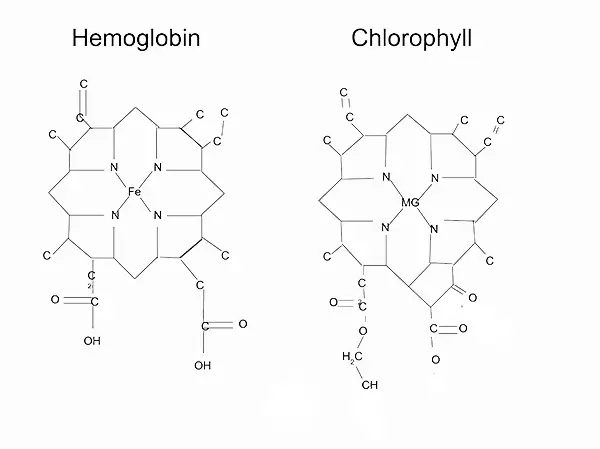
Chlorella also contains chlorophyll and is one of the richest sources of chlorophyll in the world. The high chlorophyll content in chlorella is what gives it its vibrant green color.
Both chlorella and chlorophyll are said to have detoxifying effects, as they can help remove toxins from the body. However, they do it in different ways.
Chlorella detoxifies your body by binding to toxins and carrying them out of your system.
Chlorophyll detoxifies your body by purifying your blood and enhancing your oxygen delivery.
As chlorophyll has a similar structure to hemoglobin, it can increase the production of red blood cells and improve their function. This can boost the circulation and oxygenation of your tissues. Chlorophyll can also neutralize free radicals, which are unstable molecules that can cause oxidative stress and inflammation.
So which one is stronger for detoxification: chlorella or chlorophyll? Well, it depends on what kind of toxins you want to get rid of. If you are exposed to heavy metals or other environmental pollutants, chlorella may be more effective for you. If you want to improve your blood quality and oxygenation, chlorophyll may be more beneficial for you. If you want to reduce body odor or bad breath, chlorophyll supplements are your best choice and topical chlorophyllin gel has shown promise in caring for acne, large pores, or sunburn.
However, you don’t have to choose between them. You can get both chlorella and chlorophyll from the same source: chlorella supplements. Chlorella supplements contain both the whole algae cells and the extracted chlorophyll. This way, you can enjoy the best of both worlds and get a comprehensive detoxification for your body.
Summary:
Chlorella and chlorophyll offer different detox pathways: chlorella binds and removes toxins, while chlorophyll purifies blood and boosts oxygenation. Chlorella supplements, containing both, offer a comprehensive detox, catering to various needs.
Golden Chlorella.
Golden Chlorella belongs to the family of microalgae, Chlorella vulgaris.
It is a type of chlorella algae that has been fermented and dried, resulting in a natural golden color and a neutral taste. Unlike the green variety, which has a high chlorophyll content, golden chlorella has no chlorophyll properties. This makes it more palatable and versatile, as it does not have a bitter taste or smell.
Unlike green chlorella, which has a strong algae taste and odor and high chlorophyll content, golden chlorella is more palatable and versatile, making it easier to incorporate into various dishes and drinks. Since golden chlorella has neither the color nor the taste of algae, it can be used for cooking and can be added to all dishes whether sweet or salted, hot or cold including sauces, soups, and smoothies.
However, this does not mean that golden chlorella is devoid of any health benefits. Golden chlorella is also a superfood. It can provide various health benefits as regular chlorella minus chlorophyll.
It is produced by a Swiss company called Alver World SA, which also produces another type called diamond chlorella, which has a white color and a higher protein content. Another Dutch company called Duplaco has also cultivated new golden chlorella with a low pigment content.
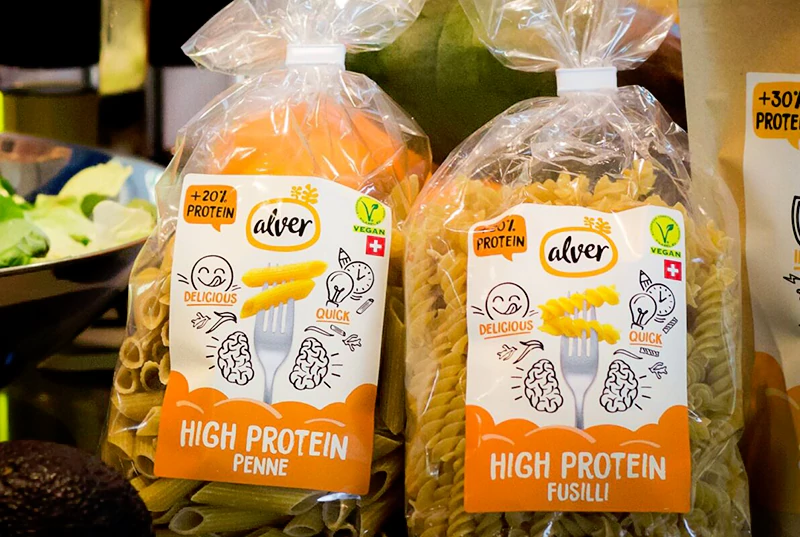
Summary:
Golden chlorella, a taste-neutral and versatile algae superfood, shines with its ease of use in dishes and drinks, while still packing health benefits similar to regular chlorella, minus the chlorophyll.
Potential Risks of Chlorella.
Chlorella has been deemed “generally recognized as safe” by the FDA.
The most common side effects include diarrhea, nausea, gas, green stools, and stomach cramping. However, it may also have some potential risks or side effects for some people, such as:
- Allergic reactions.
- Contamination. Chlorella supplements may be contaminated with heavy metals, bacteria, fungi, or other harmful substances that can affect the quality and safety of the product. Contamination can occur due to poor manufacturing practices, environmental pollution, or improper storage.
- Drug interactions. Because chlorella may stimulate the immune system, it can reduce the effectiveness of immunosuppressant medications. Due to its high vitamin K content, a nutrient that promotes healthy blood clotting, it can also interact with blood thinners.
How to Use Chlorella.
There are no official guidelines for the appropriate use or amounts of chlorella to take. Some common daily intakes range from 3 grams to 10 grams.
The powder can be mixed with water, juice, yogurt, smoothies, soups, salads, or any other food or drink of choice. Cooking chlorella might diminish its nutritional value. I was not able to find any studies on the thermal processing impact on the nutritional value profile of chlorella. Some vitamins like vitamin C and a big chunk of phytochemicals are heat sensitive. However, some people may not like the taste or smell of chlorella, which is similar to seaweed or grass. To mask its taste or smell, it can be added to vinaigrette dressings, miso soups, wheatgrass, or some other dish.
Alternatively, it can be taken as a supplement in different forms, such as powder, capsule, tablet, or extract.
Spirulina vs. Chlorella.
| Nutrient | Spirulina | Daily Value | Chlorella | Daily Value |
| Calories | 290 | 15.50% | 411 | 21% |
| Protein | 57.5 g | 115% | 58 g | 116% |
| Fat | 7.72 g | 15% | 13 g | 20% |
| Carbohydrates | 23.9 g | 6% | 23 g | 8% |
| Fiber | 3.6 g | 0% | 3.5g | 0% |
| Sugar | 3.1 g | 0% | 2.5g | 0% |
| Potassium | 1360 mg | 29% | 950 mg | 20% |
| Calcium | 120 mg | 12% | 221 mg | 17% |
| Copper | 6.1 mg | 0.67% | 0.1 mg | 0% |
| Iron | 28.5 mg | 219% | 130 mg | 722% |
| Magnesium | 165 mg | 55% | 315 mg | 75% |
| Zinc | 2 mg | 21% | 71 mg | 646% |
| Vitamin A | 570 IU | 120% | 51,300 IU | 900%-1000% |
| Vitamin B1 (Thiamin) | 2.38 mg | 207% | 1.7 mg | 142% |
| Vitamin B2 (Riboflavin) | 3.67 mg | 306% | 4.3 mg | 331% |
| Vitamin B3 (Niacin) | 12.8 mg | 85% | 23.8 mg | 149% |
| Vitamin B6 | 0.364 mg | 28% | 0.9 mg | 70% |
| Folate (B9) | 94 mcg | 24% | 90 mcg | 24% |
| Vitamin B12 | pseudo | 0% | 0.13 mg | * |
| Vitamin C | 10 mg | 12% | 10 mg | 11% |
| Vitamin E | 5 mg | 33% | 1.5 mg | 10% |
| Vitamin K | 25 mcg | 24% | 263 mcg | 219% |
Source U.S. DEPARTMENT OF AGRICULTURE
Chlorella is higher in:
- Zinc
- Provitamin A
- Vitamin K
- Magnesium
- Iron
- B12
Spirulina is lower in calories and this might not matter much because we would be using both of them as a supplement in grams of powder per day, but what is important is that it is higher in ORAC value because it is a blue-green algae that have one of the strongest antioxidant pigments of all disregarding astaxanthin, which also comes from microscopic algae.
Chlorella and Spirulina Together.
Spirulina and chlorella can be taken together with no adverse effects. In recent years we have seen an increasing number of supplements that offer them both inside a tablet with usually a fifty-fifty split.
There are two options here that we could consider. One is to lower the dosage of one and then add the other one. The second option is to just add the other one with both of them having full dosages. In both cases, I think there could be some additional benefits depending on what we want to achieve.
The best-case scenario is to use both of them in full dosages if we don’t have allergies or other side effects. Keep in mind that these supplements are not cheap and that we could have for example better sources of antioxidants like astaxanthin or turmeric or we could have other sources of nutrient-dense foods such as herbs and spices microgreens or cacao. However, the best case scenario is to use them all, both spirulina and chlorella astaxanthin turmeric microgreens herbs and spices essential oils, and other supplements if you have enough resources to invest in your health. Dealing with health care bills and chronic diseases is much more expensive than any of these supplements.
Chlorella and BMAA.
BMAA is a neurotoxin that is produced by some species of cyanobacteria and is linked to neurodegenerative diseases such as Alzheimer’s, Parkinson’s, and ALS. Chlorella is a single-celled green algae that belongs to a different division than cyanobacteria and does not produce BMAA. However, it is important to ensure that your supplement product is pure, organic, and properly dried and processed to avoid any contamination or toxin development. Chlorella can help detoxify the body from BMAA and other toxins by binding to them and facilitating their elimination.
FAQ
References:
- Queiroz, M. L., Rodrigues, A. P., Bincoletto, C., Figueirêdo, C. A., & Malacrida, S. (2003). Protective effects of Chlorella vulgaris in lead-exposed mice infected with Listeria monocytogenes. International immunopharmacology, 3(6), 889–900. https://doi.org/10.1016/S1567-5769(03)00082-1
- Volgusheva, A. A., Todorenko, D. A., Baizhumanov, A. A., Chivkunova, O. B., Solovchenko, A., & Antal, T. K. (2022). Cadmium- and chromium-induced damage and acclimation mechanisms in Scenedesmus quadricauda and Chlorella sorokiniana. Journal of Applied Phycology, 34(3), 1435–1446. https://doi.org/10.1007/s10811-022-02747-6
- Carfagna, S., Lanza, N., Salbitani, G., Basile, A., Sorbo, S., & Vona, V. (2013). Physiological and morphological responses of Lead or Cadmium exposed Chlorella sorokiniana 211-8K (Chlorophyceae). SpringerPlus, 2(1), 1-7. https://doi.org/10.1186/2193-1801-2-147
- Cheng, J., Yin, W., Chang, Z., Lundholm, N., & Jiang, Z. (2016). Biosorption capacity and kinetics of cadmium(II) on live and dead Chlorella vulgaris. Journal of Applied Phycology, 29(1), 211–221. https://doi.org/10.1007/s10811-016-0916-2
- Otsuki, T., Shimizu, K., Iemitsu, M., & Kono, I. (2011). Salivary secretory immunoglobulin A secretion increases after 4-weeks ingestion of chlorella-derived multicomponent supplement in humans: a randomized cross over study. Nutrition journal, 10, 91. https://doi.org/10.1186/1475-2891-10-91
- Kwak, J. H., Baek, S. H., Woo, Y., Han, J. K., Kim, B. G., Kim, O. Y., & Lee, J. H. (2012). Beneficial immunostimulatory effect of short-term Chlorella supplementation: enhancement of natural killer cell activity and early inflammatory response (randomized, double-blinded, placebo-controlled trial). Nutrition journal, 11, 53. https://doi.org/10.1186/1475-2891-11-53
- Nakashima, Y., Ohsawa, I., Konishi, F., Hasegawa, T., Kumamoto, S., Suzuki, Y., & Ohta, S. (2009). Preventive effects of Chlorella on cognitive decline in age-dependent dementia model mice. Neuroscience Letters, 464(3), 193-198. https://doi.org/10.1016/j.neulet.2009.08.044
- Morgese, M. G., Mhillaj, E., Francavilla, M., Bove, M., Morgano, L., Tucci, P., Trabace, L., & Schiavone, S. (2016). Chlorella sorokiniana Extract Improves Short-Term Memory in Rats. Molecules (Basel, Switzerland), 21(10), 1311. https://doi.org/10.3390/molecules21101311
- Nakano, S., Takekoshi, H., & Nakano, M. (2007). Chlorella (Chlorella pyrenoidosa) supplementation decreases dioxin and increases immunoglobulin a concentrations in breast milk. Journal of medicinal food, 10(1), 134–142. https://doi.org/10.1089/jmf.2006.023
- Nakano, S., Takekoshi, H., & Nakano, M. (2009). Chlorella pyrenoidosa Supplementation Reduces the Risk of Anemia, Proteinuria and Edema in Pregnant Women. Plant Foods for Human Nutrition, 65(1), 25–30. https://doi.org/10.1007/s11130-009-0145-9
- Hirooka, T., Nagase, H., Uchida, K., Hiroshige, Y., Ehara, Y., Nishikawa, J., Nishihara, T., Miyamoto, K., & Hirata, Z. (2005). BIODEGRADATION OF BISPHENOL A AND DISAPPEARANCE OF ITS ESTROGENIC ACTIVITY BY THE GREEN ALGA CHLORELLA FUSCA VAR. VACUOLATA. Environmental Toxicology and Chemistry, 24(8), 1896. https://doi.org/10.1897/04-259r.1
- Ryu, N. H., Lim, Y., Park, J. E., Kim, J., Kim, J. Y., Kwon, S. W., & Kwon, O. (2014). Impact of daily Chlorella consumption on serum lipid and carotenoid profiles in mildly hypercholesterolemic adults: a double-blinded, randomized, placebo-controlled study. Nutrition journal, 13, 57. https://doi.org/10.1186/1475-2891-13-57
- Otsuki, T., Shimizu, K., Iemitsu, M., & Kono, I. (2013). Multicomponent supplement containing Chlorella decreases arterial stiffness in healthy young men. Journal of clinical biochemistry and nutrition, 53(3), 166–169. https://doi.org/10.3164/jcbn.13-51
- Otsuki, T., Shimizu, K., & Maeda, S. (2015). Changes in arterial stiffness and nitric oxide production with Chlorella-derived multicomponent supplementation in middle-aged and older individuals. Journal of clinical biochemistry and nutrition, 57(3), 228–232. https://doi.org/10.3164/jcbn.15-86
- Jiang, Q., Chen, Q., Zhang, T., Liu, M. Z., Duan, S., & Sun, X. (2021). The antihypertensive effects and potential molecular mechanism of microalgal angiotensin I-Converting enzyme Inhibitor-Like peptides: A mini review. International Journal of Molecular Sciences, 22(8), 4068. https://doi.org/10.3390/ijms22084068
- Fallah, A. A., Sarmast, E., Habibian Dehkordi, S., Engardeh, J., Mahmoodnia, L., Khaledifar, A., & Jafari, T. (2018). Effect of Chlorella supplementation on cardiovascular risk factors: A meta-analysis of randomized controlled trials. Clinical Nutrition, 37(6), 1892-1901. https://doi.org/10.1016/j.clnu.2017.09.019
- Umemoto, S., & Otsuki, T. (2014). Chlorella-derived multicomponent supplementation increases aerobic endurance capacity in young individuals. Journal of clinical biochemistry and nutrition, 55(2), 143–146. https://doi.org/10.3164/jcbn.14-58
- Mizoguchi, T., Takehara, I., Masuzawa, T., Saito, T., & Naoki, Y. (2008). Nutrigenomic studies of effects of Chlorella on subjects with high-risk factors for lifestyle-related disease. Journal of medicinal food, 11(3), 395–404. https://doi.org/10.1089/jmf.2006.0180
- Lee, H. S., Park, H. J., & Kim, M. K. (2008). Effect of Chlorella vulgaris on lipid metabolism in Wistar rats fed high fat diet. Nutrition research and practice, 2(4), 204–210. https://doi.org/10.4162/nrp.2008.2.4.204
- Chon, J. W., Sung, J. H., Hwang, E. J., & Park, Y. K. (2009). Chlorella methanol extract reduces lipid accumulation in and increases the number of apoptotic 3T3-L1 cells. Annals of the New York Academy of Sciences, 1171, 183–189. https://doi.org/10.1111/j.1749-6632.2009.04895.x
- Panahi, Y., Tavana, S., Sahebkar, A., Masoudi, H., & Madanchi, N. (2012). Impact of Adjunctive Therapy with Chlorellav ulgaris Extract on Antioxidant Status, Pulmonary Function, and Clinical Symptoms of Patients with Obstructive Pulmonary Diseases. Scientia pharmaceutica, 80(3), 719–730. https://doi.org/10.3797/scipharm.1202-06
- Lee, S. H., Kang, H. J., Lee, H. J., Kang, M. H., & Park, Y. K. (2010). Six-week supplementation with Chlorella has favorable impact on antioxidant status in Korean male smokers. Nutrition (Burbank, Los Angeles County, Calif.), 26(2), 175–183. https://doi.org/10.1016/j.nut.2009.03.010
- Nakano, S., Takekoshi, H., & Nakano, M. (2009). Chlorella pyrenoidosa Supplementation Reduces the Risk of Anemia, Proteinuria and Edema in Pregnant Women. Plant Foods for Human Nutrition, 65(1), 25–30. https://doi.org/10.1007/s11130-009-0145-9
- Salvia, S., Warly, L., Zudri, F., Novia, R., & Fadri, R. A. (2021). Chlorella vulgaris Supplementation as Mineral Source of Zinc and Selenium to Improve the Quality of Goat Milk as Health Drink in COVID-19 Pandemy. IOP Conference Series, 757(1), 012051. https://doi.org/10.1088/1755-1315/757/1/012051
Related Posts
Do you have any questions about nutrition and health?
I would love to hear from you and answer them in my next post. I appreciate your input and opinion and I look forward to hearing from you soon. I also invite you to follow us on Facebook, Instagram, and Pinterest for more diet, nutrition, and health content. You can leave a comment there and connect with other health enthusiasts, share your tips and experiences, and get support and encouragement from our team and community.
I hope that this post was informative and enjoyable for you and that you are prepared to apply the insights you learned. If you found this post helpful, please share it with your friends and family who might also benefit from it. You never know who might need some guidance and support on their health journey.
– You Might Also Like –

Learn About Nutrition
Milos Pokimica is a doctor of natural medicine, clinical nutritionist, medical health and nutrition writer, and nutritional science advisor. Author of the book series Go Vegan? Review of Science, he also operates the natural health website GoVeganWay.com
Medical Disclaimer
GoVeganWay.com brings you reviews of the latest nutrition and health-related research. The information provided represents the personal opinion of the author and is not intended nor implied to be a substitute for professional medical advice, diagnosis, or treatment. The information provided is for informational purposes only and is not intended to serve as a substitute for the consultation, diagnosis, and/or medical treatment of a qualified physician or healthcare provider.NEVER DISREGARD PROFESSIONAL MEDICAL ADVICE OR DELAY SEEKING MEDICAL TREATMENT BECAUSE OF SOMETHING YOU HAVE READ ON OR ACCESSED THROUGH GoVeganWay.com
NEVER APPLY ANY LIFESTYLE CHANGES OR ANY CHANGES AT ALL AS A CONSEQUENCE OF SOMETHING YOU HAVE READ IN GoVeganWay.com BEFORE CONSULTING LICENCED MEDICAL PRACTITIONER.
In the event of a medical emergency, call a doctor or 911 immediately. GoVeganWay.com does not recommend or endorse any specific groups, organizations, tests, physicians, products, procedures, opinions, or other information that may be mentioned inside.
Editor Picks –
Milos Pokimica is a health and nutrition writer and nutritional science advisor. Author of the book series Go Vegan? Review of Science, he also operates the natural health website GoVeganWay.com
Latest Articles –
Top Health News — ScienceDaily
- The overlooked nutrition risk of Ozempic and Wegovyon February 4, 2026
Popular weight-loss drugs like Ozempic and Wegovy can dramatically curb appetite, but experts warn many users are flying blind when it comes to nutrition. New research suggests people taking these medications may not be getting enough guidance on protein, vitamins, and overall diet quality, increasing the risk of muscle loss and nutrient deficiencies.
- A 25-year study found an unexpected link between cheese and dementiaon February 4, 2026
A massive Swedish study tracking nearly 28,000 people for 25 years found an unexpected link between full-fat dairy and brain health. Among adults without a genetic risk for Alzheimer’s, eating more full-fat cheese was associated with a noticeably lower risk of developing the disease, while higher cream intake was tied to reduced dementia risk overall. The findings challenge decades of low-fat dietary advice but come with important caveats.
- MIT’s new brain tool could finally explain consciousnesson February 4, 2026
Scientists still don’t know how the brain turns physical activity into thoughts, feelings, and awareness—but a powerful new tool may help crack the mystery. Researchers at MIT are exploring transcranial focused ultrasound, a noninvasive technology that can precisely stimulate deep regions of the brain that were previously off-limits. In a new “roadmap” paper, they explain how this method could finally let scientists test cause-and-effect in consciousness research, not just observe […]
- Why heart disease risk in type 2 diabetes looks different for men and womenon February 4, 2026
Scientists are digging into why heart disease risk in type 2 diabetes differs between men and women—and sex hormones may be part of the story. In a large Johns Hopkins study, men with higher testosterone had lower heart disease risk, while rising estradiol levels were linked to higher risk. These hormone effects were not seen in women. The results point toward more personalized approaches to heart disease prevention in diabetes.
- Sound machines might be making your sleep worseon February 4, 2026
Sound machines may not be the sleep saviors many believe. Researchers found that pink noise significantly reduced REM sleep, while simple earplugs did a better job protecting deep, restorative sleep from traffic noise. When pink noise was combined with outside noise, sleep quality dropped even further. The results suggest that popular “sleep sounds” could be doing more harm than good—particularly for kids.
- This unexpected plant discovery could change how drugs are madeon February 3, 2026
Plants make chemical weapons to protect themselves, and many of these compounds have become vital to human medicine. Researchers found that one powerful plant chemical is produced using a gene that looks surprisingly bacterial. This suggests plants reuse microbial tools to invent new chemistry. The insight could help scientists discover new drugs and produce them more sustainably.
- A hidden cellular process may drive aging and diseaseon February 3, 2026
As we age, our cells don’t just wear down—they reorganize. Researchers found that cells actively remodel a key structure called the endoplasmic reticulum, reducing protein-producing regions while preserving fat-related ones. This process, driven by ER-phagy, is tied to lifespan and healthy aging. Because these changes happen early, they could help trigger later disease—or offer a chance to stop it.
PubMed, #vegan-diet –
- Diet type and the oral microbiomeon February 2, 2026
CONCLUSION: The diet-oral microbiome-systemic inflammation axis is bidirectional and clinically relevant. Understanding both direct ecological regulation and indirect metabolic effects is essential to support precision nutrition strategies aimed at maintaining oral microbial balance and systemic inflammatory risk mitigation.
- Consensus document on healthy lifestyleson January 22, 2026
Proteins are a group of macronutrients that are vital to our lives, as they perform various functions, including structural, defensive and catalytic. An intake of 1.0-1.2 g/kg/body weight per day would be sufficient to meet our needs. Carbohydrate requirements constitute 50 % of the total caloric value and should be obtained mainly in the form of complex carbohydrates. In addition, a daily intake of both soluble and insoluble fiber is necessary. Regular consumption of extra virgin olive oil […]
- Vitamin B12 and D status in long-term vegetarians: Impact of diet duration and subtypes in Beijing, Chinaon January 21, 2026
CONCLUSIONS: This study reveals a dual challenge among Beijing long-term vegetarians: vitamin B12 deficiency was strongly associated with the degree of exclusion of animal products from the diet (veganism), while vitamin D deficiency was highly prevalent and worsened with longer diet duration. The near-universal vitamin D deficiency observed in this study suggests that, in the Beijing context, the risk may extend beyond dietary choice, potentially reflecting regional environmental factors;…
- Nutritional evaluation of duty meals provided to riot police forces in Germanyon January 13, 2026
Background: The primary role of the German riot police is maintaining internal security. Due to challenging working conditions, riot police forces face an elevated risk of various diseases. During duty, forces are provided with meals. A balanced diet can reduce the risk of some of these diseases and contribute to health-promoting working conditions. Aim: First evaluation of the nutritional quality of duty meals in Germany based on German Nutrition Society recommendations (DGE). Methods: In…
- Iodineon January 1, 2006
Iodine is an essential trace nutrient for all infants that is a normal component of breastmilk. Infant requirements are estimated to be 15 mcg/kg daily in full-term infants and 30 mcg/kg daily in preterm infants.[1] Breastmilk iodine concentration correlates well with maternal urinary iodine concentration and may be a useful index of iodine sufficiency in infants under 2 years of age, but there is no clear agreement on a value that indicates iodine sufficiency, and may not correlate with […]
Random Posts –
Featured Posts –
Latest from PubMed, #plant-based diet –
- From paddy soil to dining table: biological biofortification of rice with zincby Lei Huang on February 4, 2026
One-third of paddy soils are globally deficient in zinc (Zn) and 40% of Zn loss in the procession from brown rice to polished rice, which results in the global issue of hidden hunger, e.g., the micronutrient deficiencies in the rice-based population of developing countries. In the recent decades, biofortification of cereal food crops with Zn has emerged as a promising solution. Herein, we comprehensively reviewed the entire process of Zn in paddy soil to human diet, including the regulatory…
- Molecular Characterization of Tobacco Necrosis Virus A Variants Identified in Sugarbeet Rootsby Alyssa Flobinus on February 3, 2026
Sugarbeet provides an important source of sucrose; a stable, environmentally safe, and low-cost staple in the human diet. Viral diseases arising in sugarbeet ultimately impact sugar content, which translates to financial losses for growers. To manage diseases and prevent such losses from occurring, it is essential to characterize viruses responsible for disease. Recently, our laboratory identified a tobacco necrosis virus A variant named Beta vulgaris alphanecrovirus 1 (BvANV-1) in sugarbeet…
- Nutrition in early life interacts with genetic risk to influence preadult behaviour in the Raine Studyby Lars Meinertz Byg on February 3, 2026
CONCLUSIONS: Nutrition in early life and psychiatric genetic risk may interact to determine lasting child behaviour. Contrary to our hypothesis, we find dietary benefits in individuals with lower ADHD PGS, necessitating replication. We also highlight the possibility of including genetics in early nutrition intervention trials for causal inference.
- Effect of the gut microbiota on insect reproduction: mechanisms and biotechnological prospectsby Dilawar Abbas on February 2, 2026
The insect gut microbiota functions as a multifunctional symbiotic system that plays a central role in host reproduction. Through the production of bioactive metabolites, gut microbes interact with host hormonal pathways, immune signaling, and molecular regulatory networks, thereby shaping reproductive physiology and fitness. This review summarizes recent advances in understanding how gut microbiota regulate insect reproduction. Accumulating evidence demonstrates that microbial metabolites…
- Rationale and design of a parallel randomised trial of a plant-based intensive lifestyle intervention for diabetes remission: The REmission of diabetes using a PlAnt-based weight loss InteRvention…by Brighid McKay on February 2, 2026
CONCLUSIONS: This trial will provide high-quality clinical evidence on the use of plant-based ILIs to address the epidemics of obesity and diabetes to inform public health policies and programs in Canada and beyond.
- Diet type and the oral microbiomeby Daniel Betancur on February 2, 2026
CONCLUSION: The diet-oral microbiome-systemic inflammation axis is bidirectional and clinically relevant. Understanding both direct ecological regulation and indirect metabolic effects is essential to support precision nutrition strategies aimed at maintaining oral microbial balance and systemic inflammatory risk mitigation.




